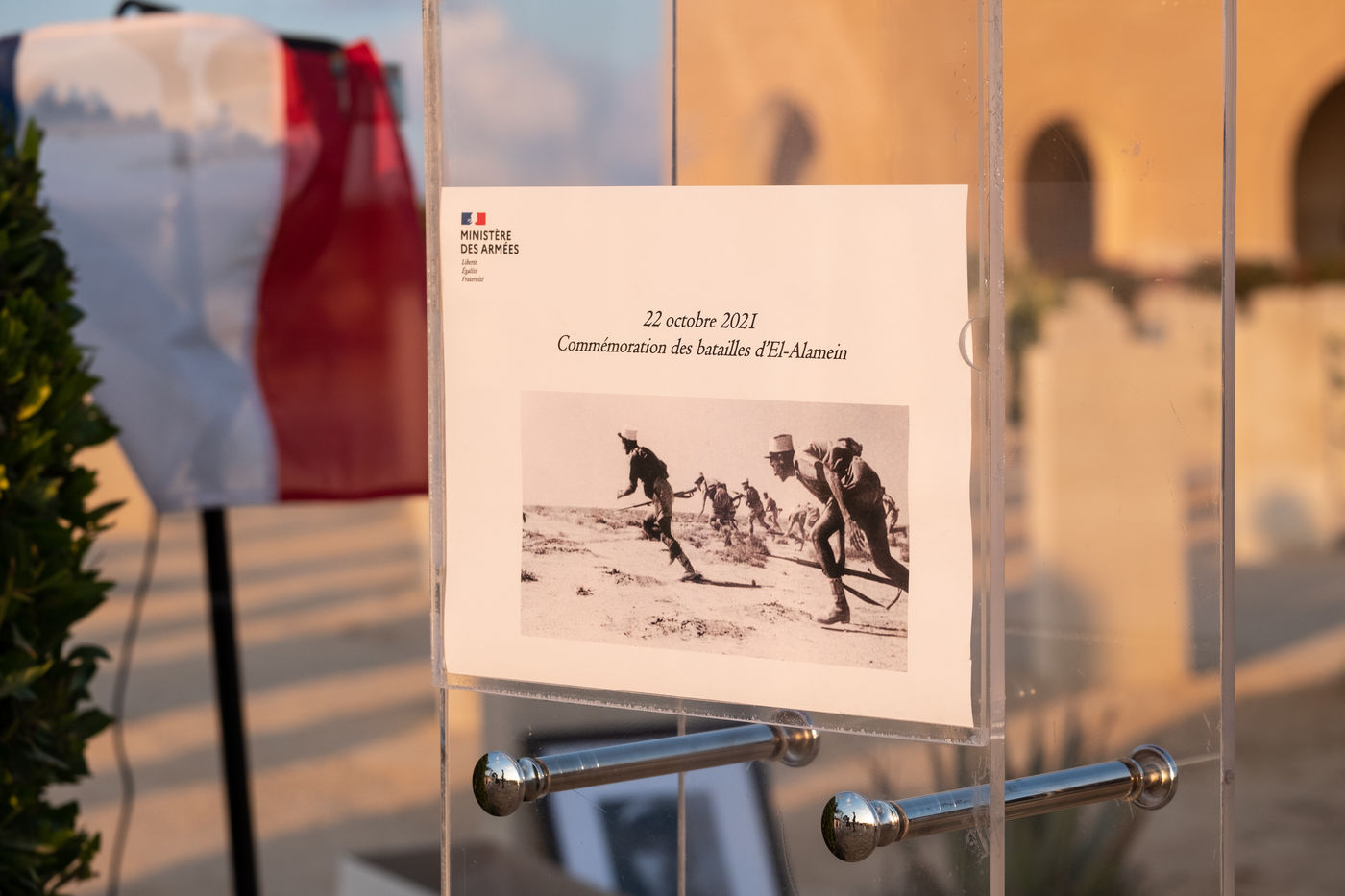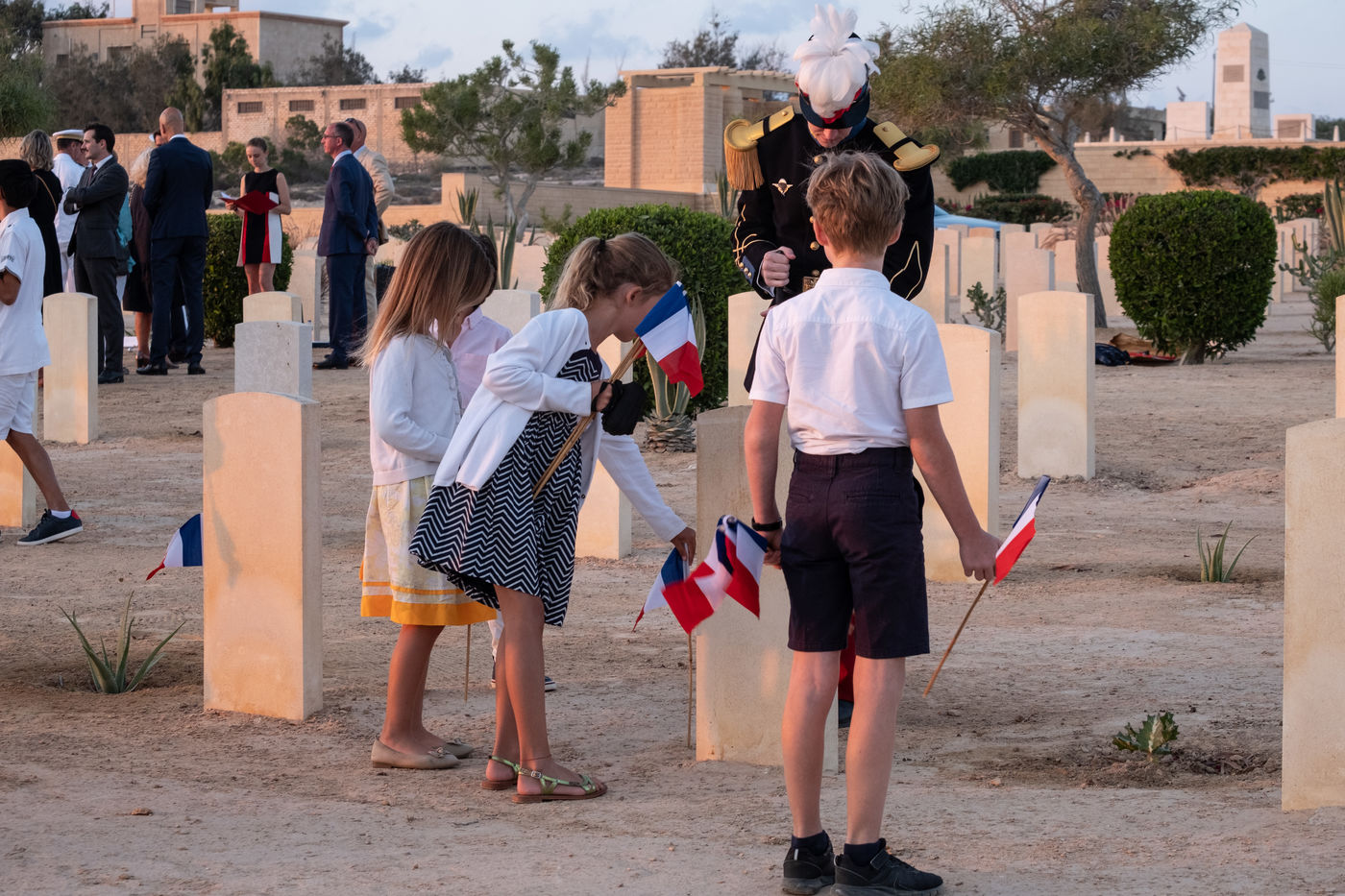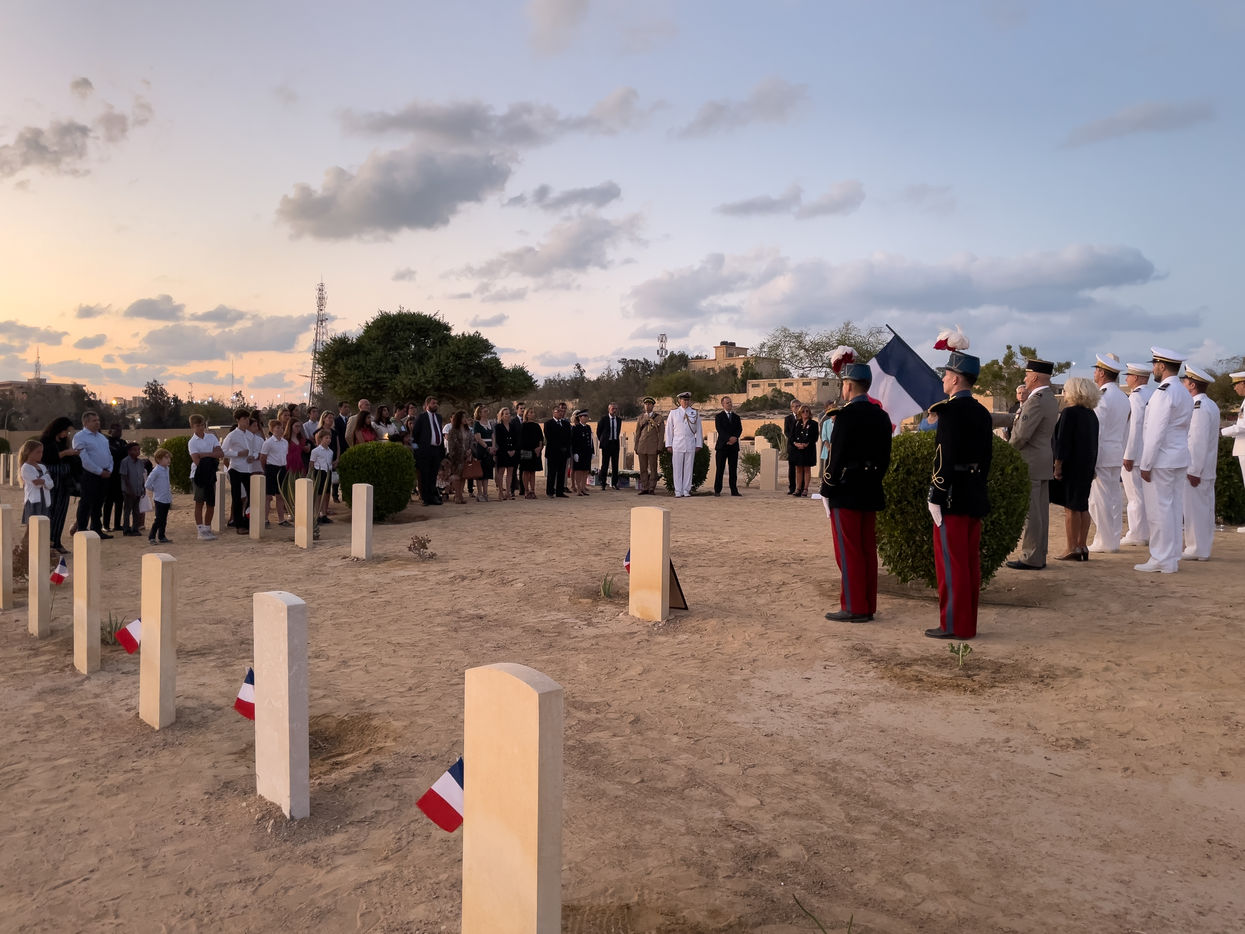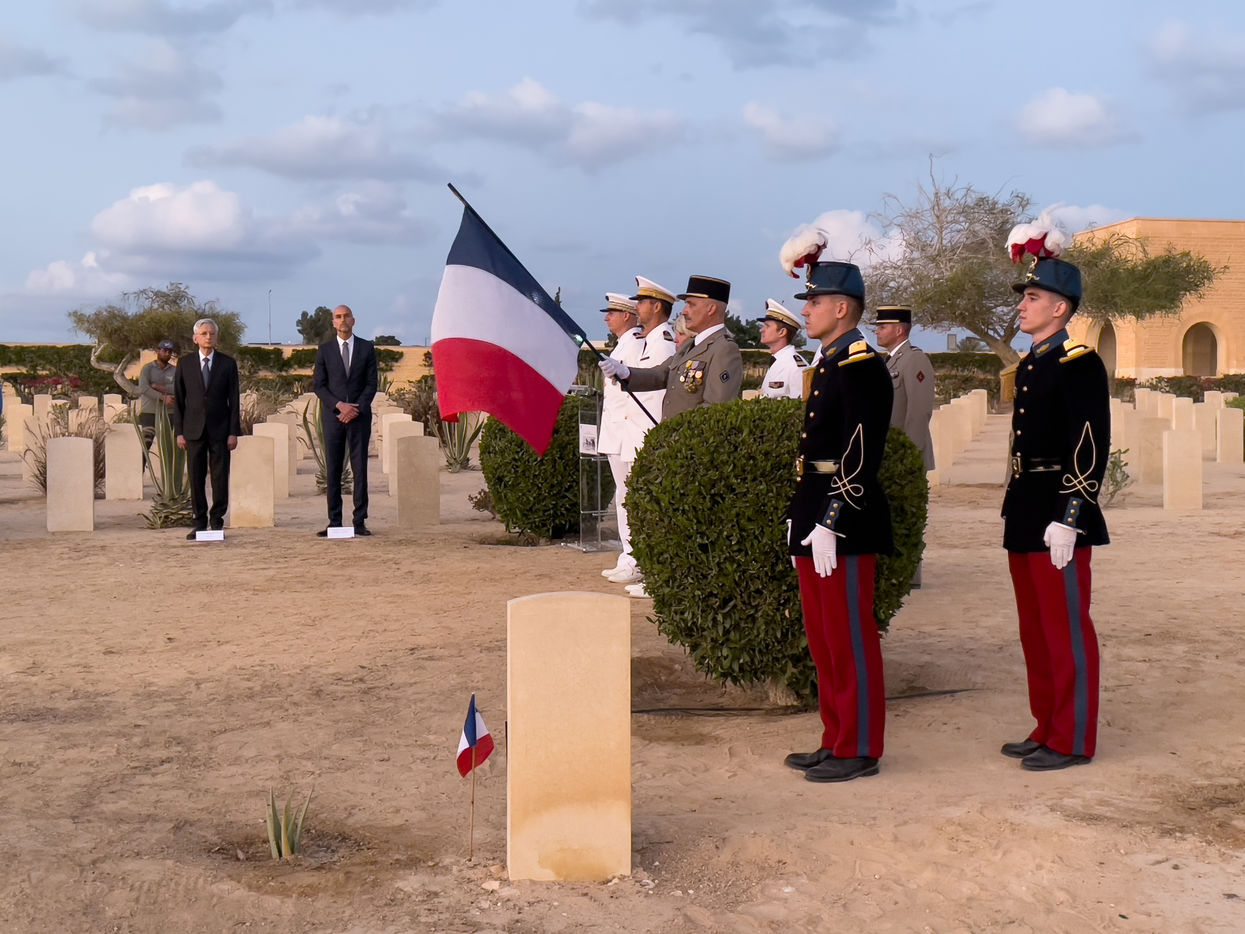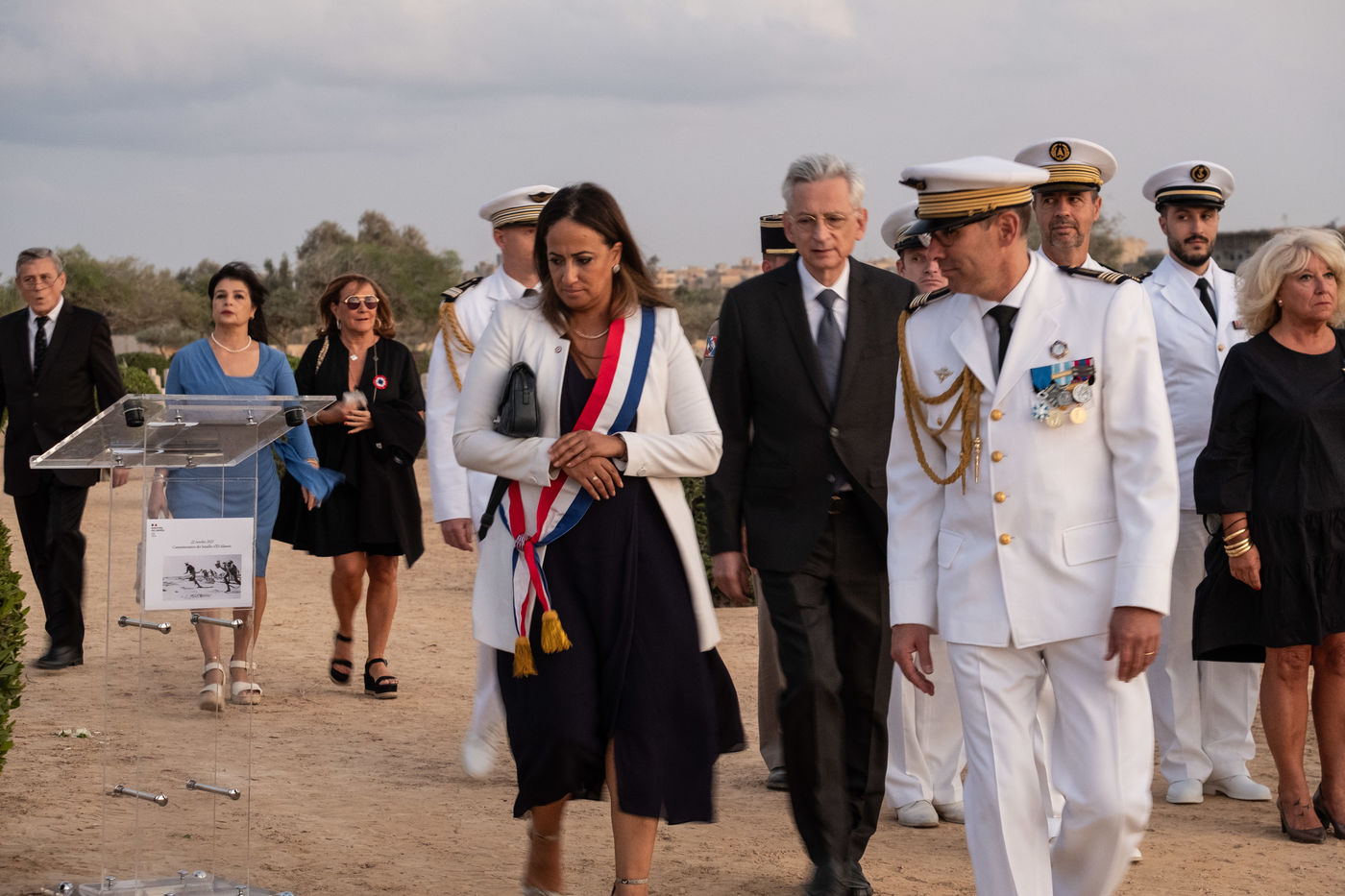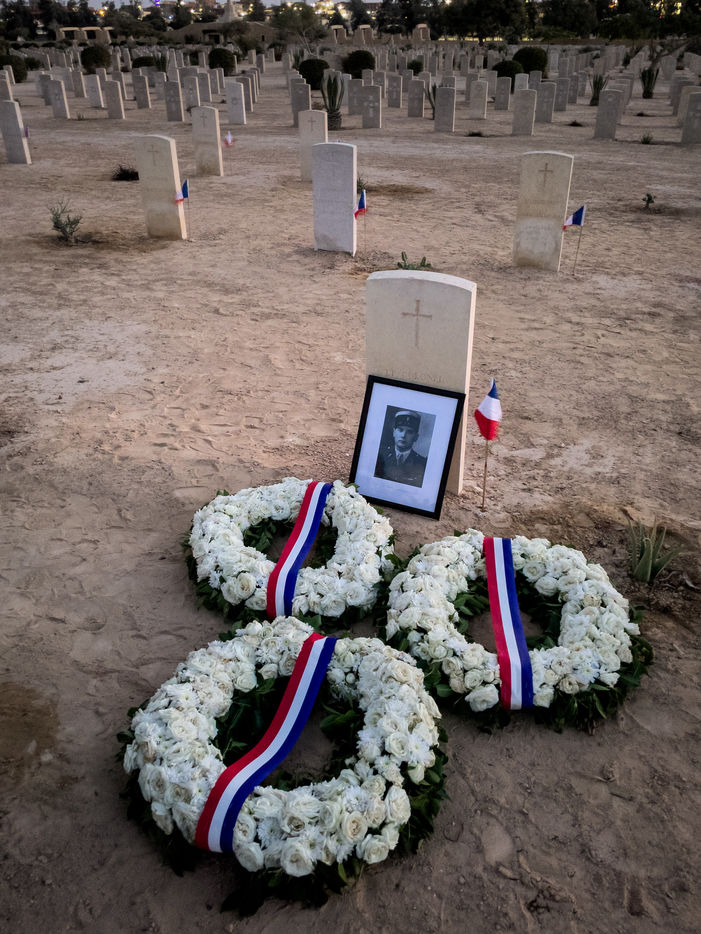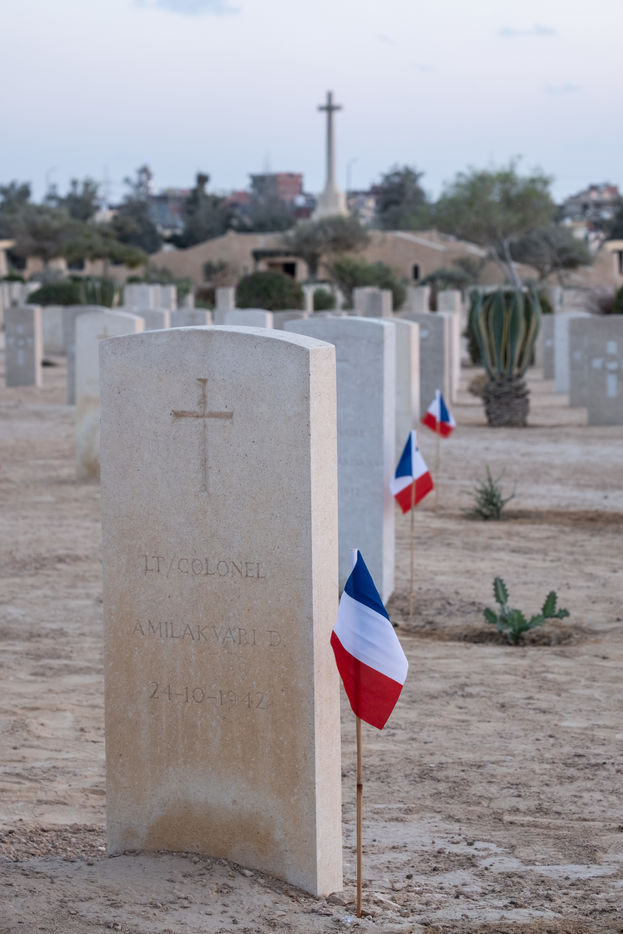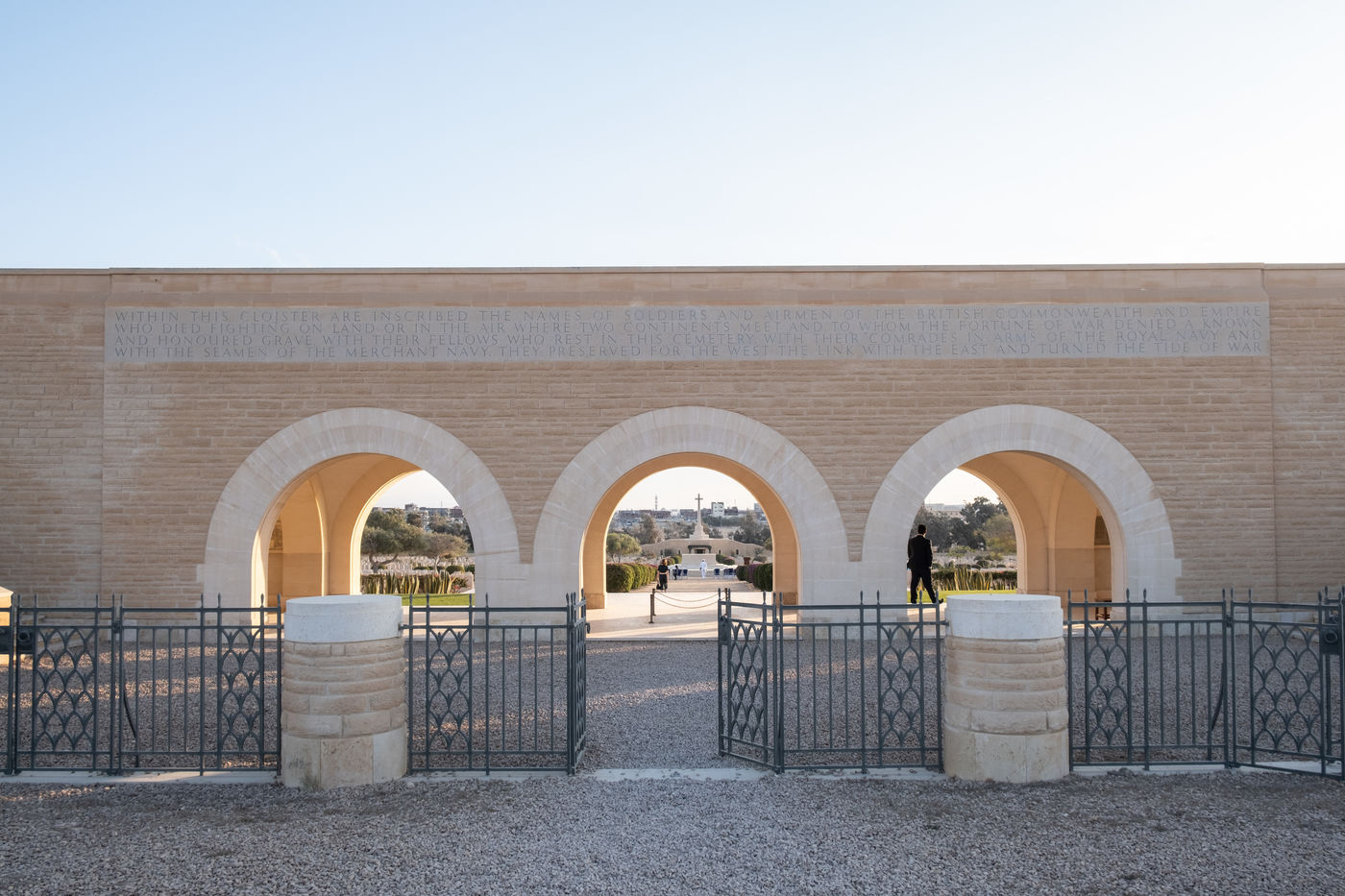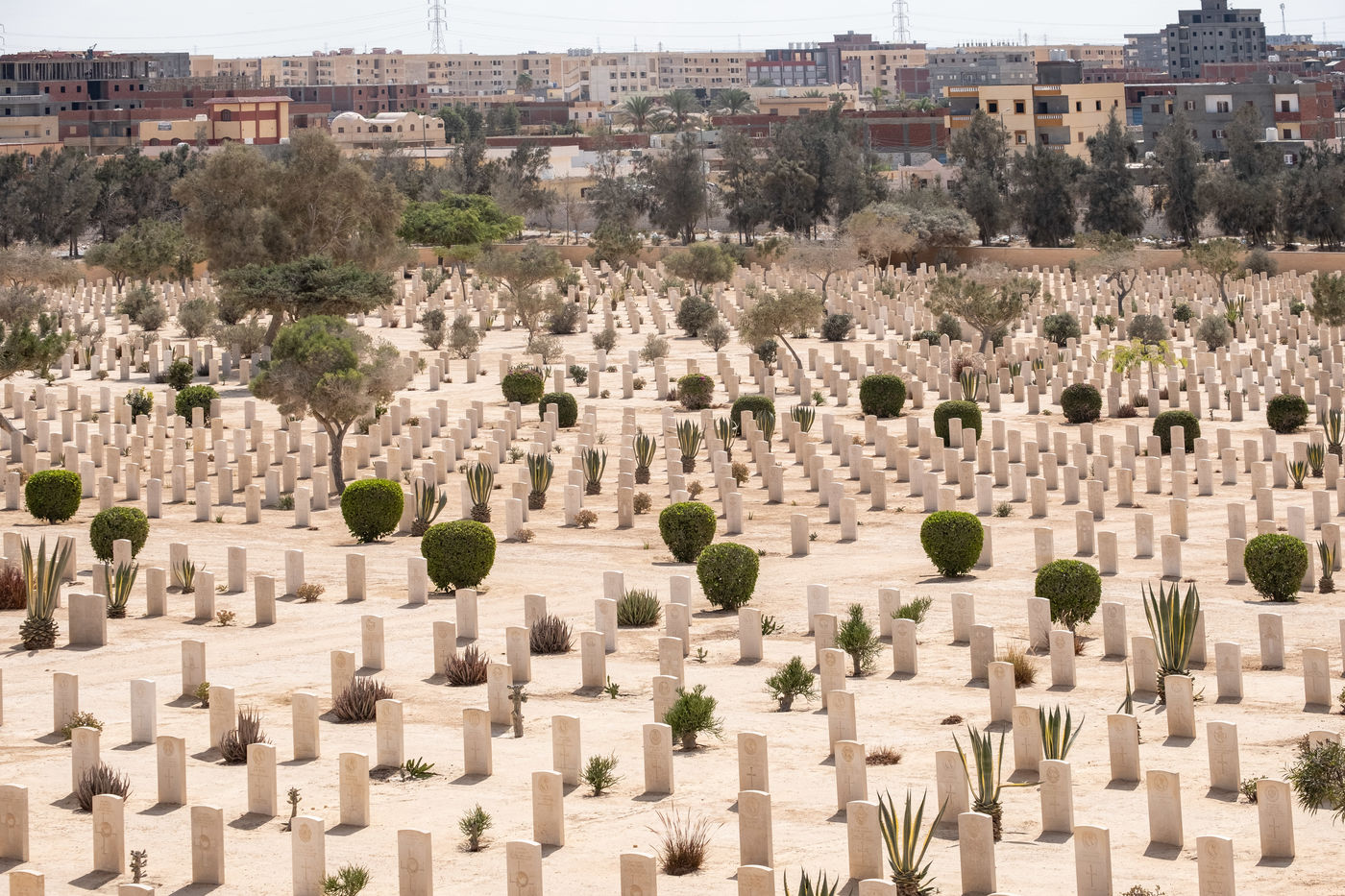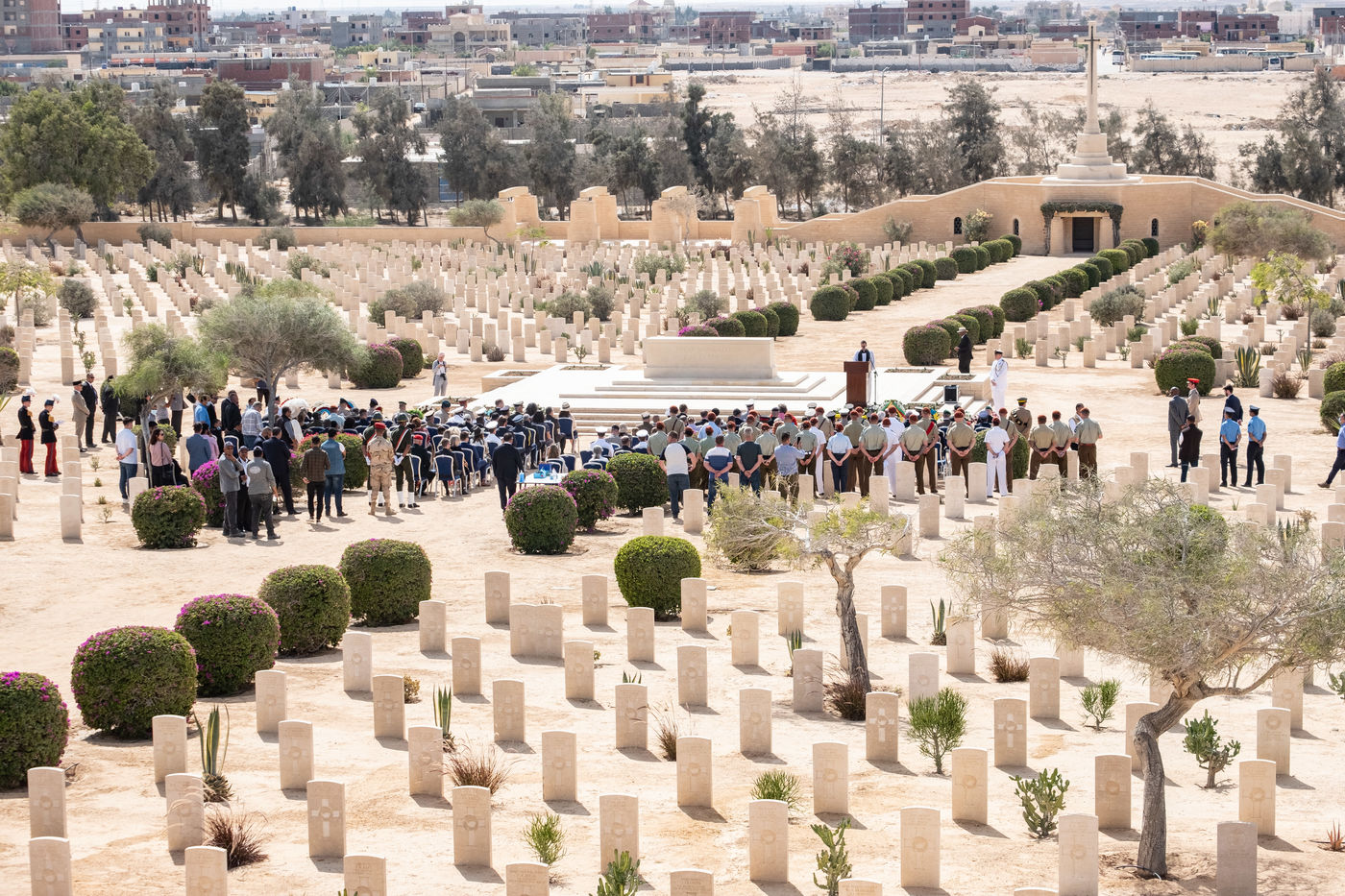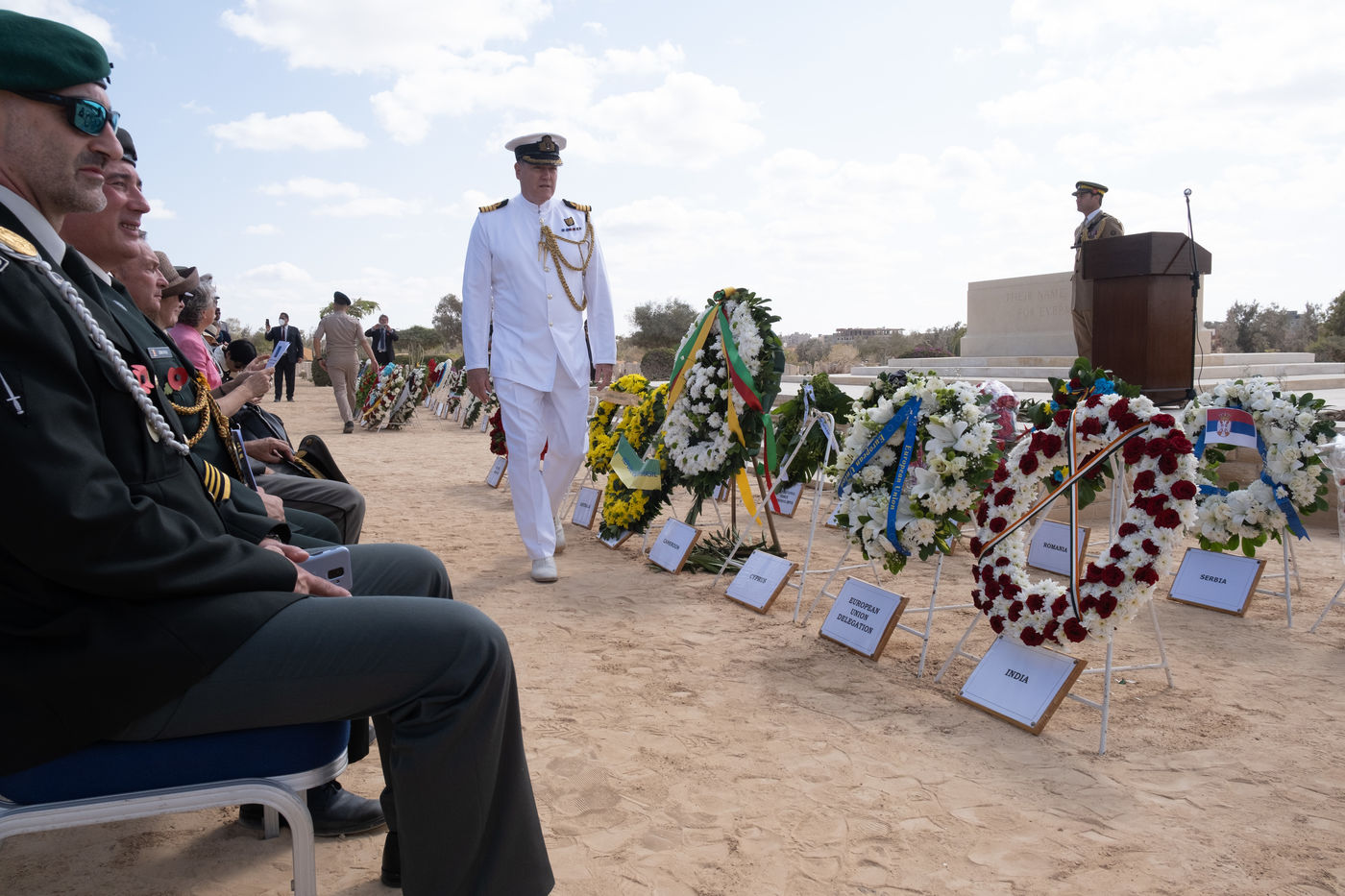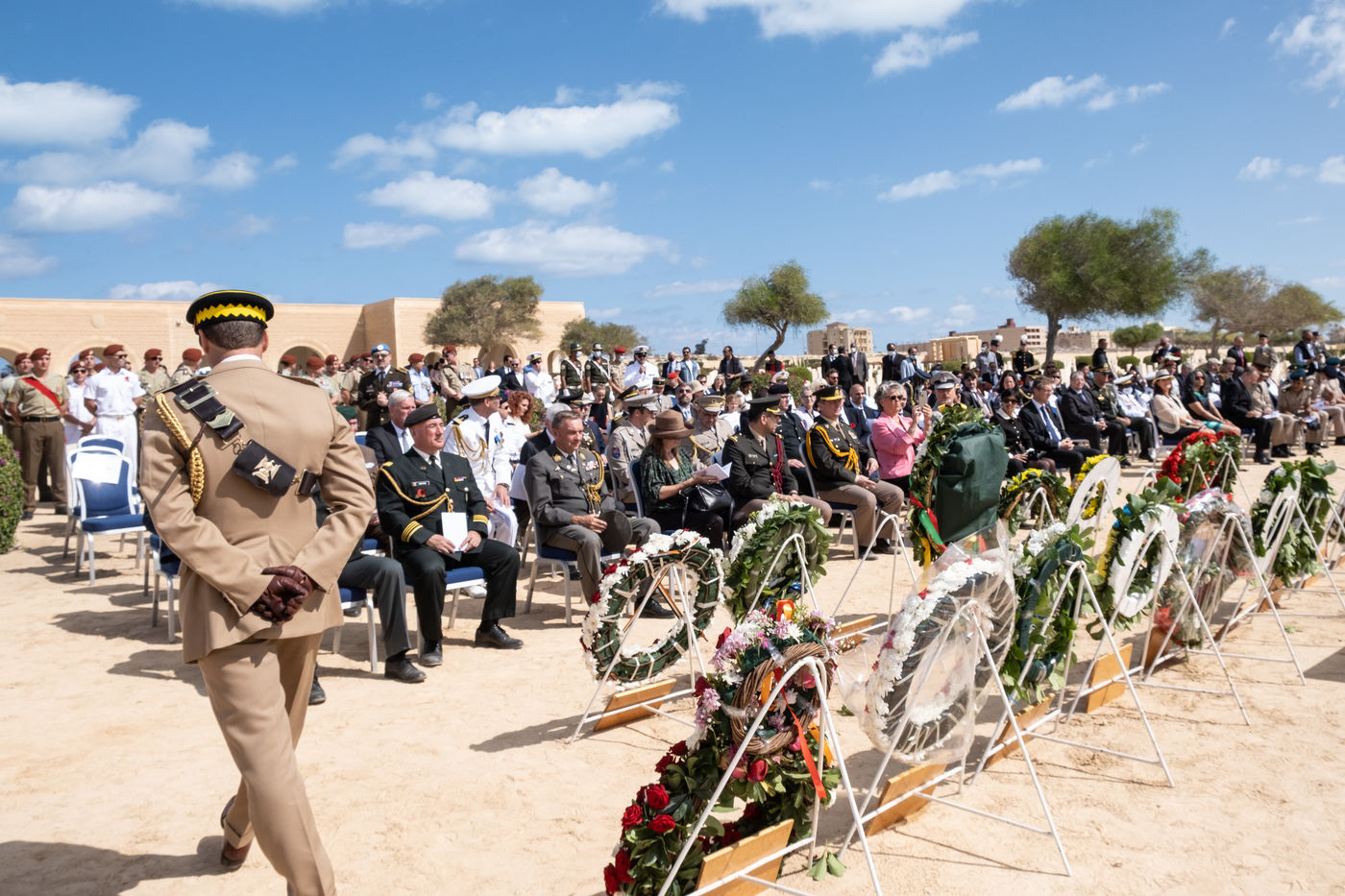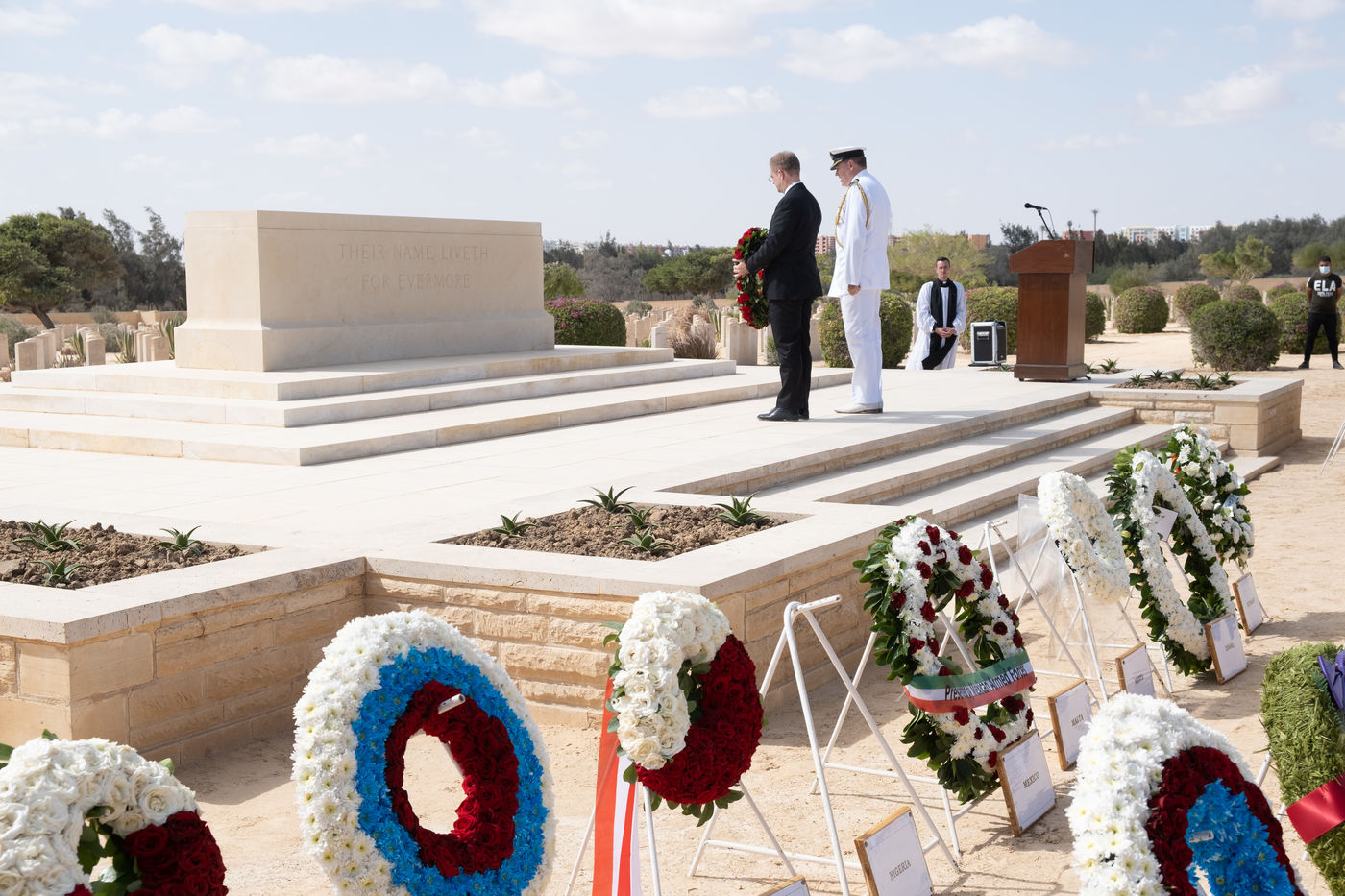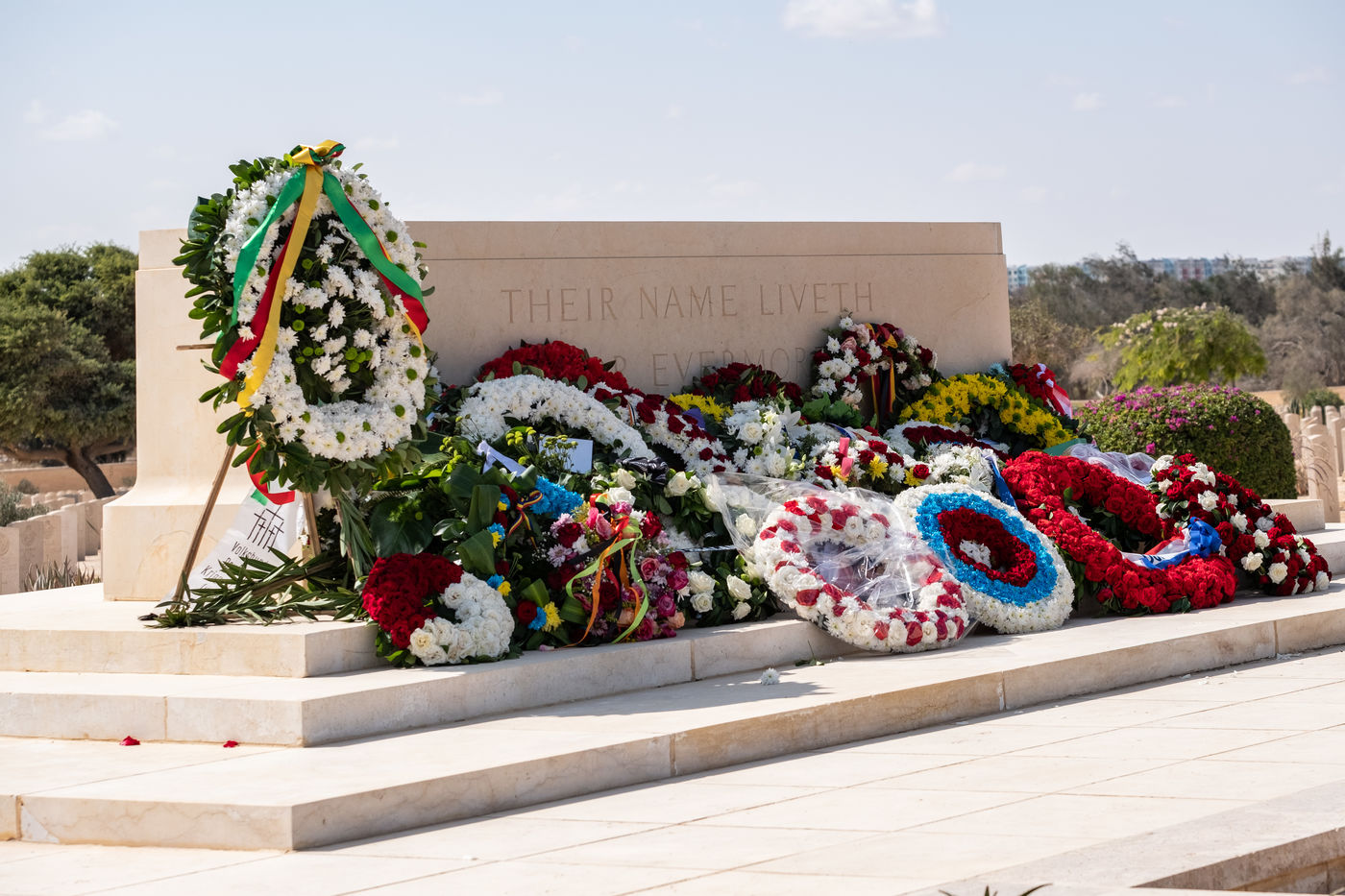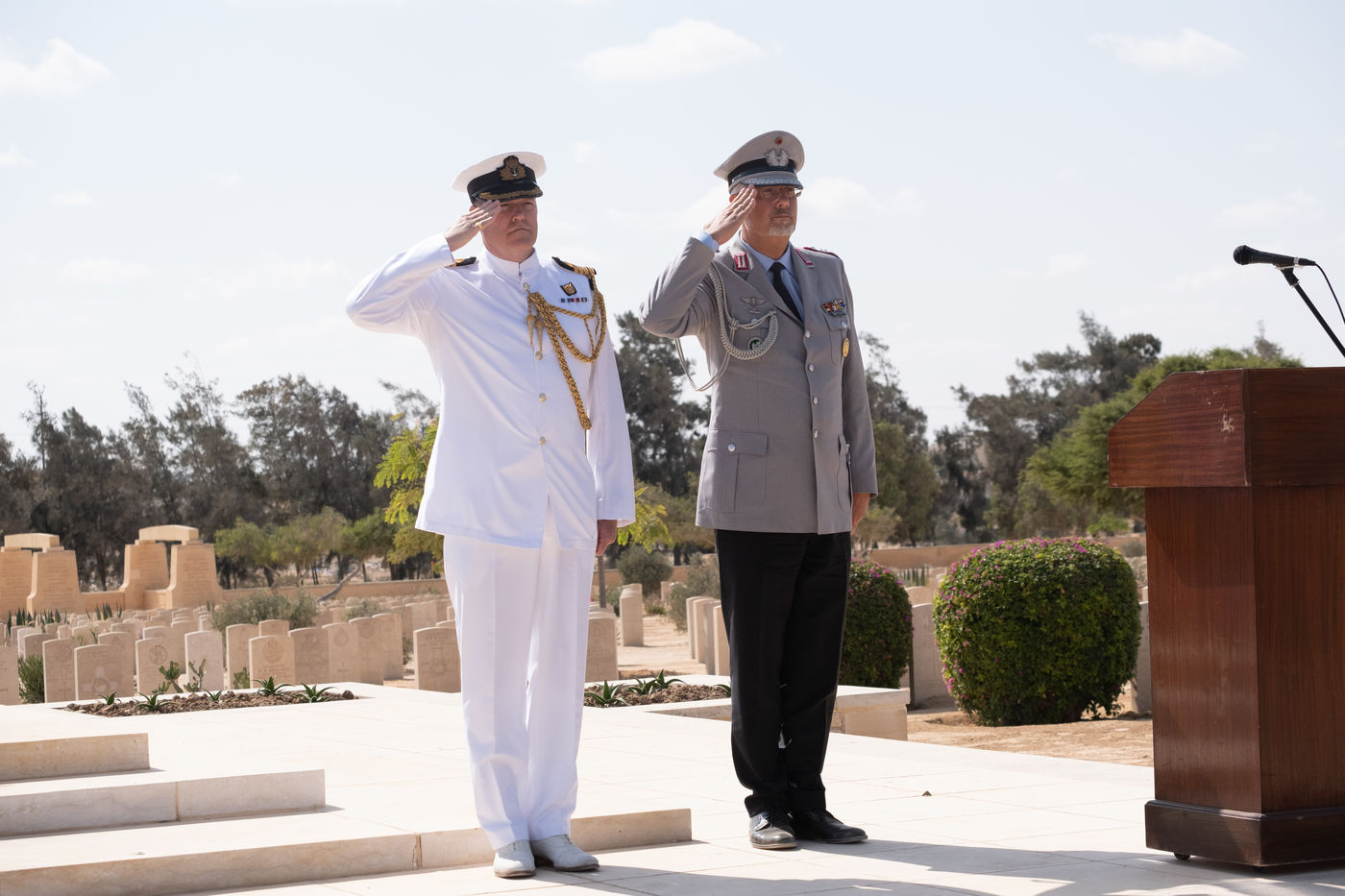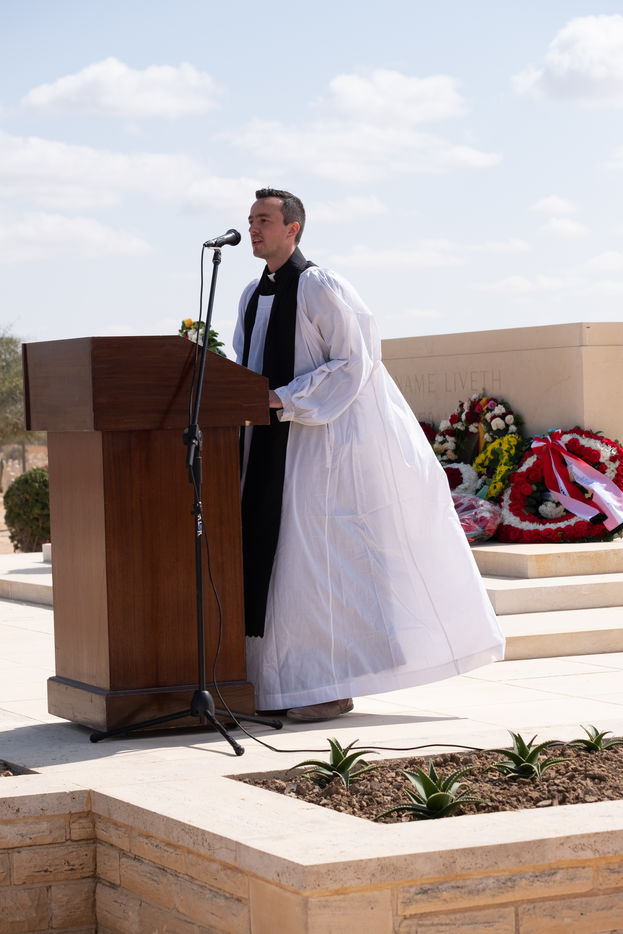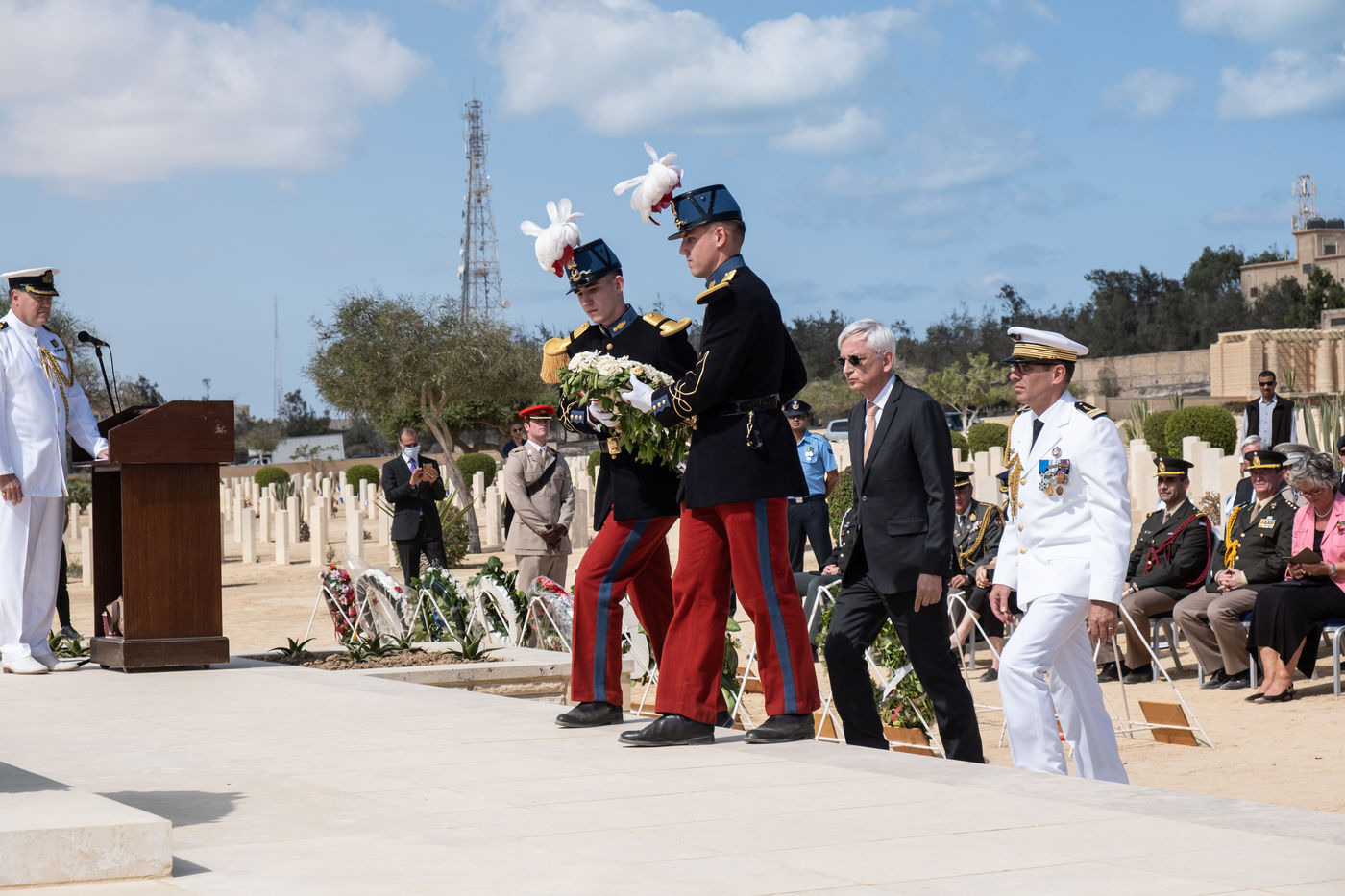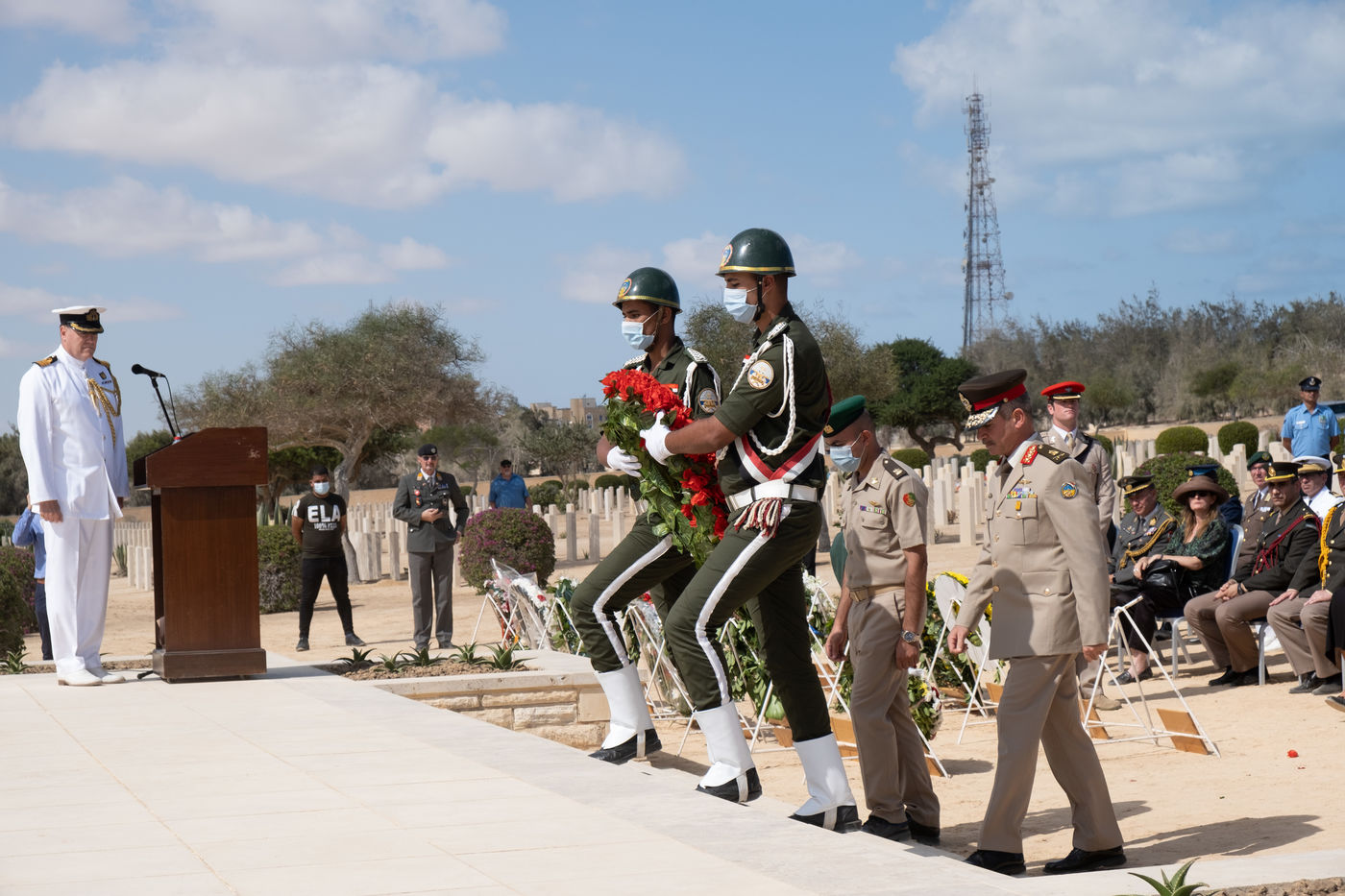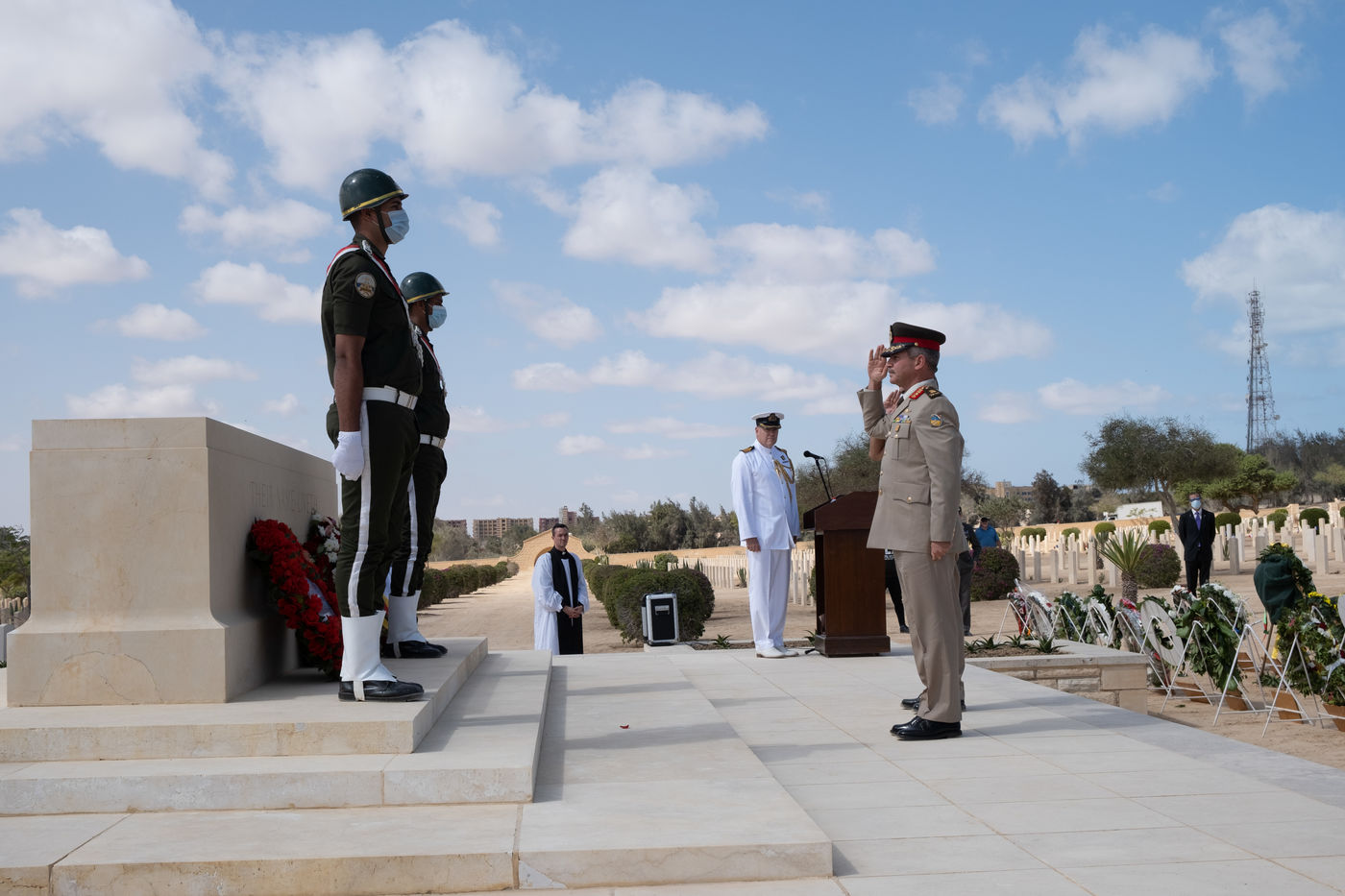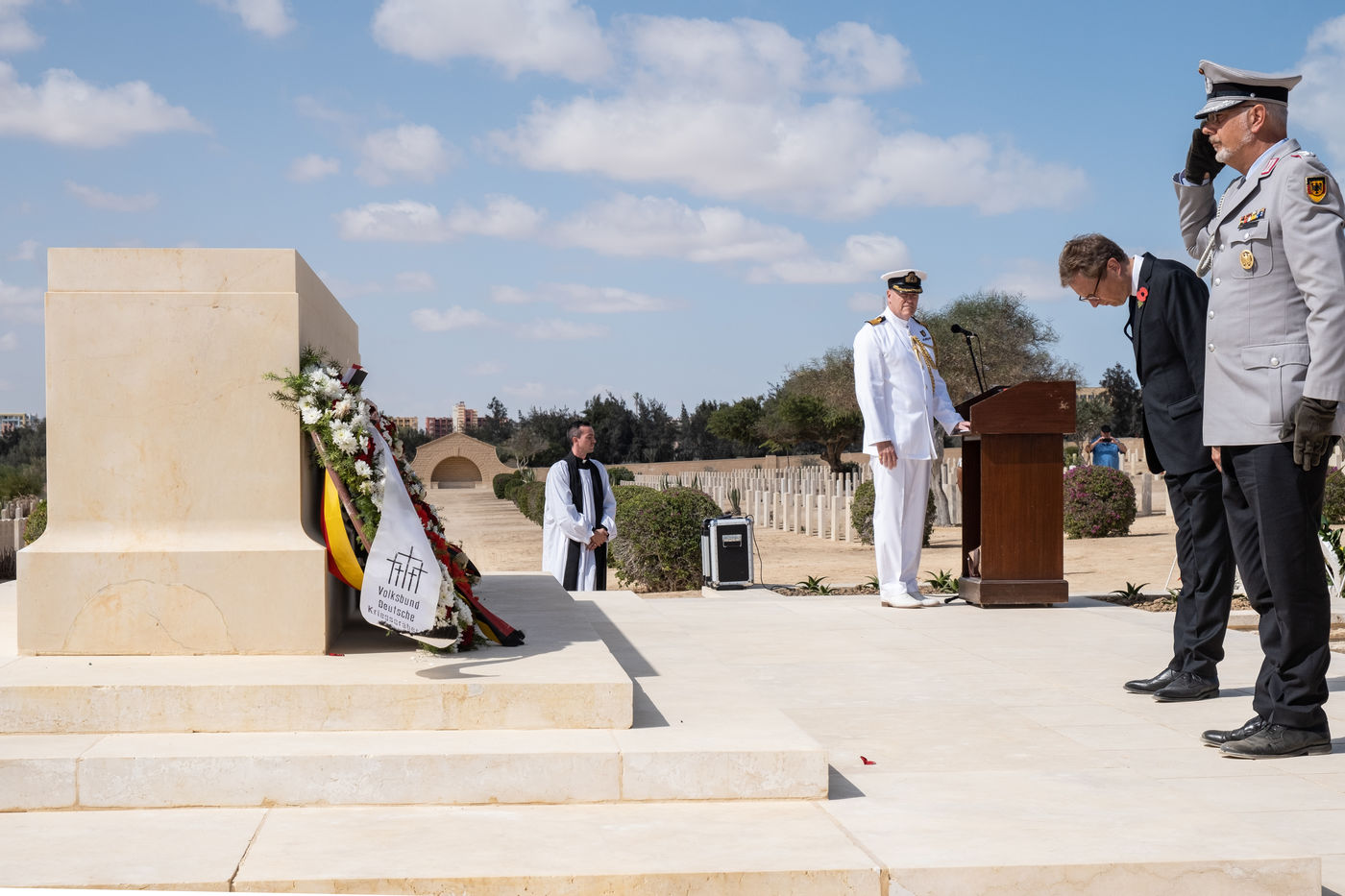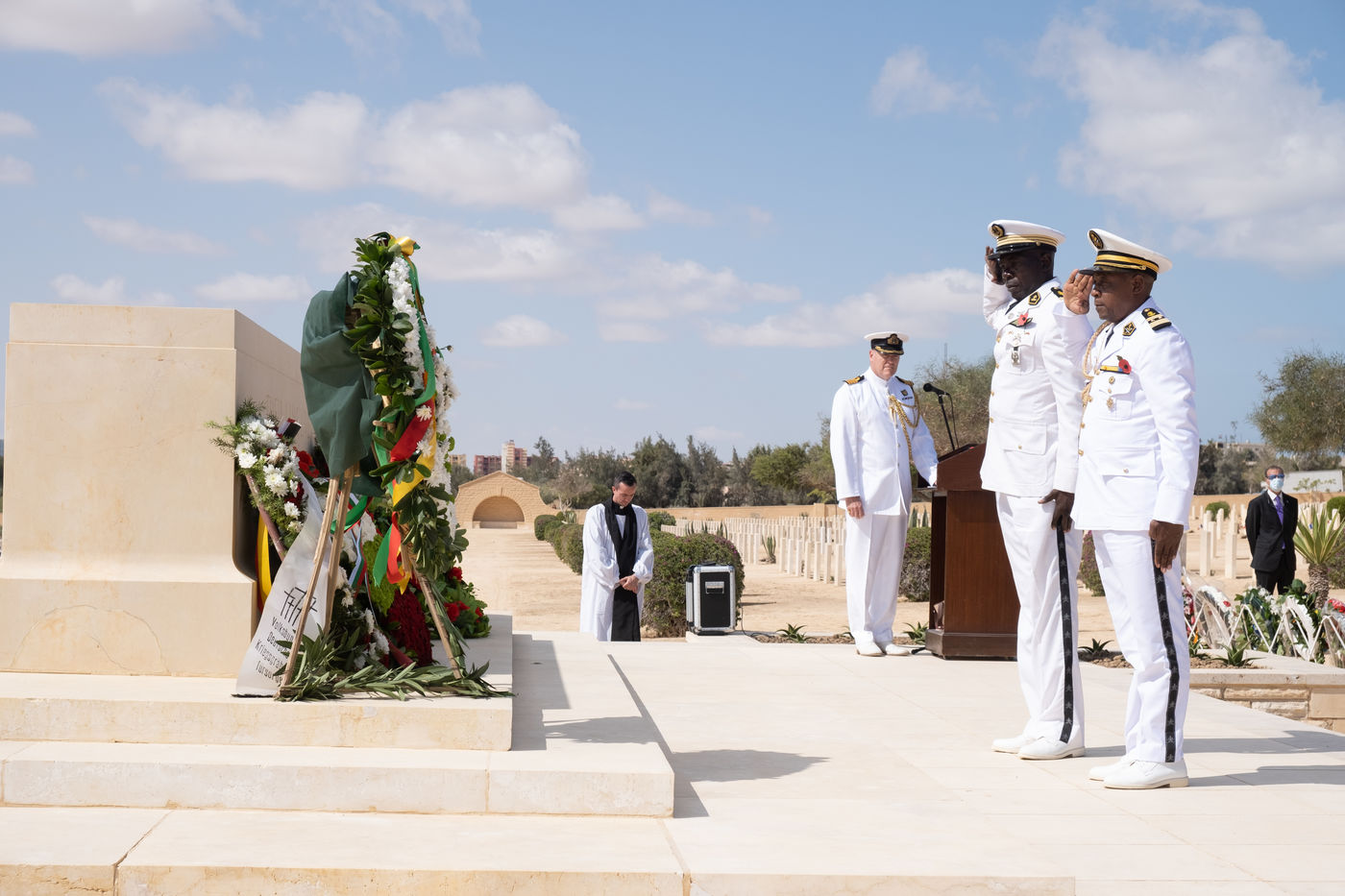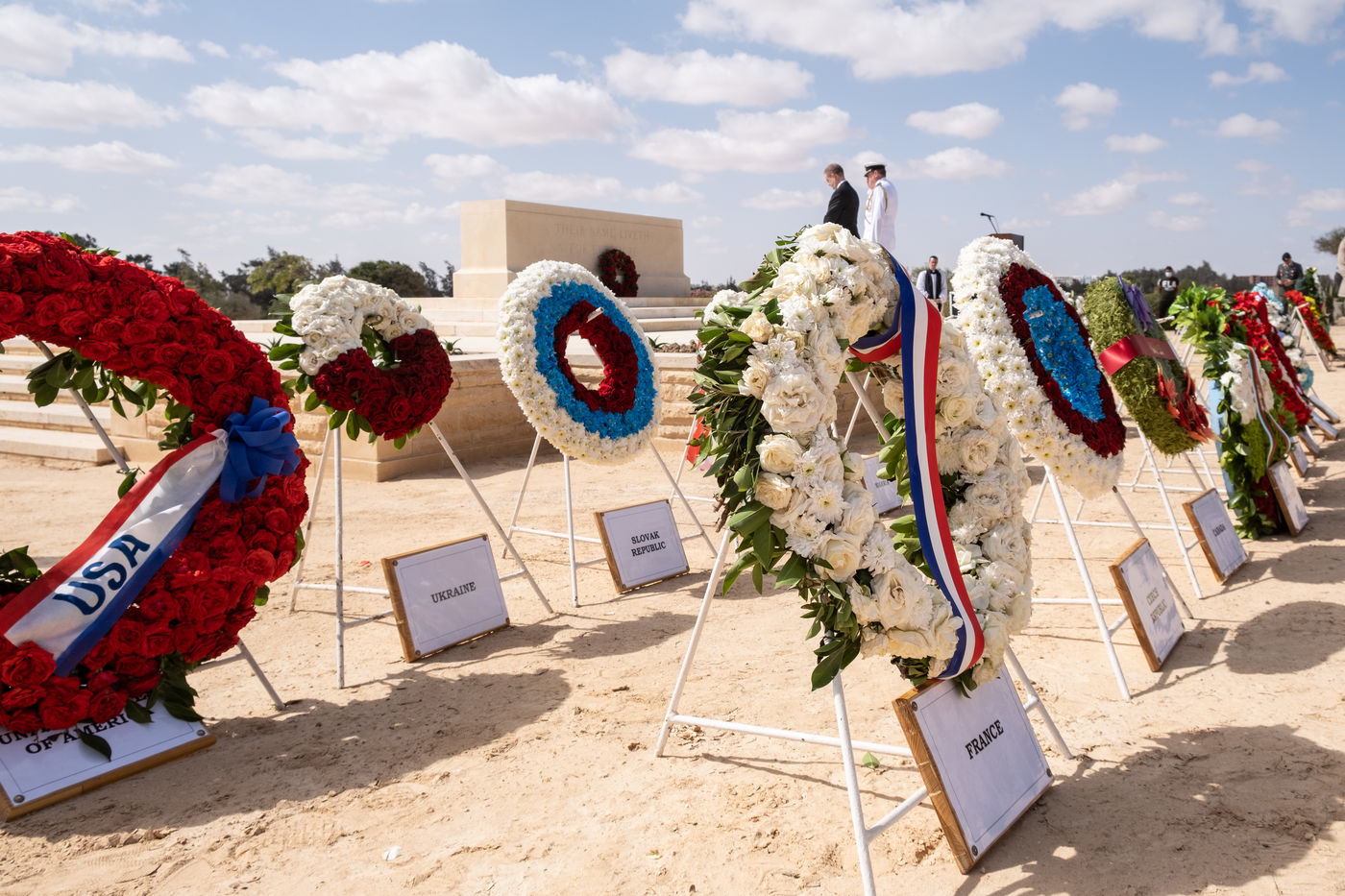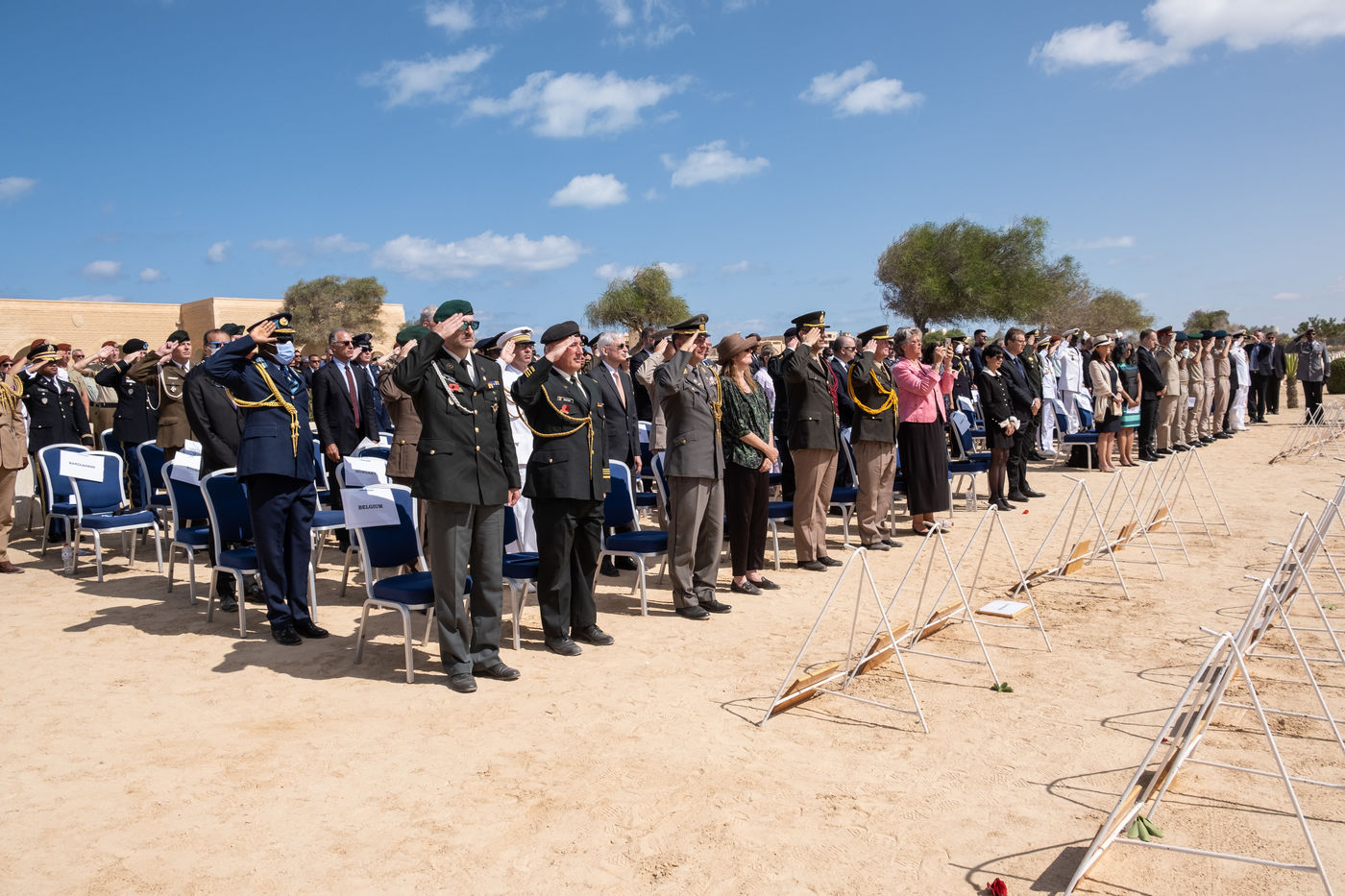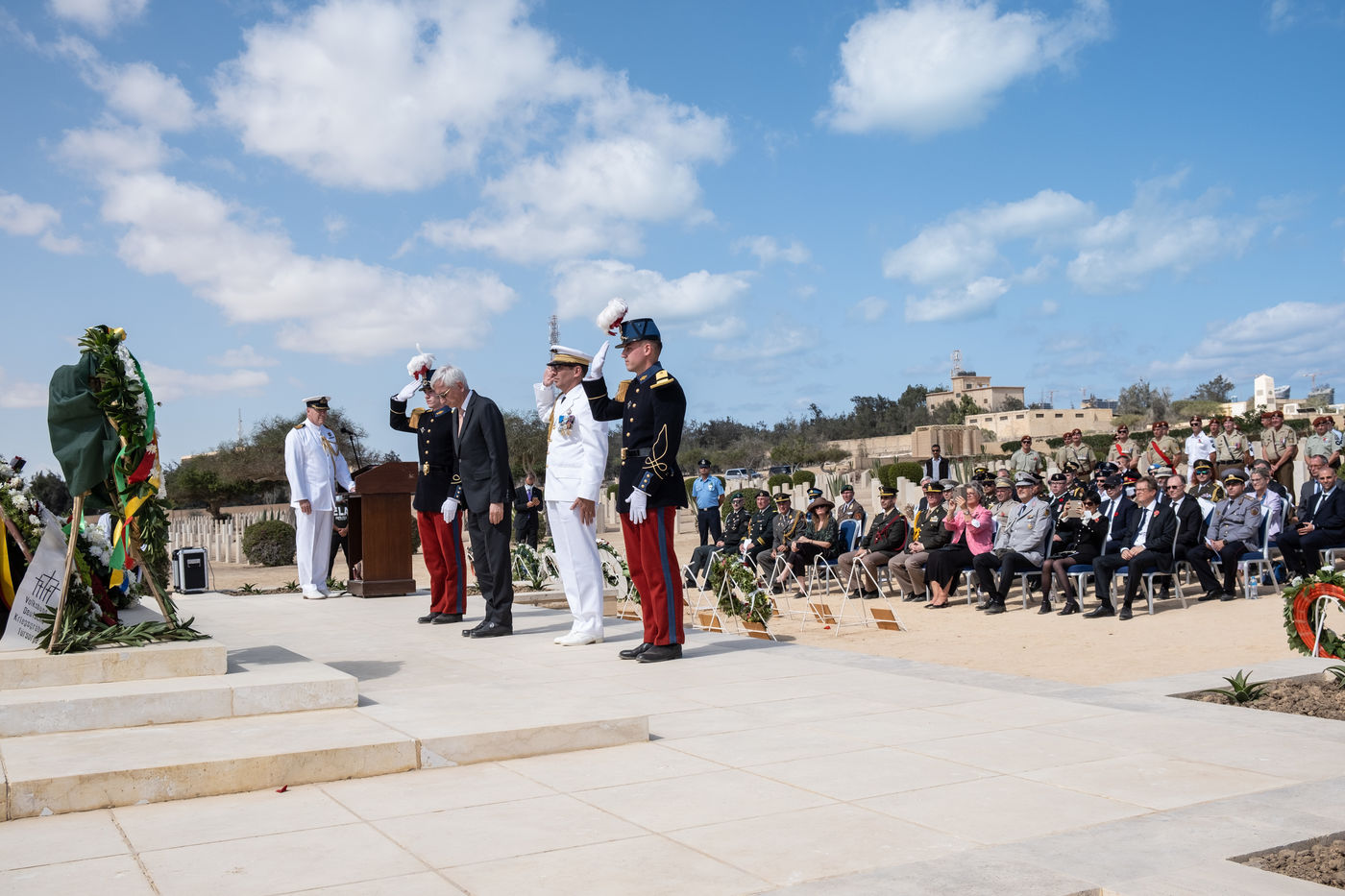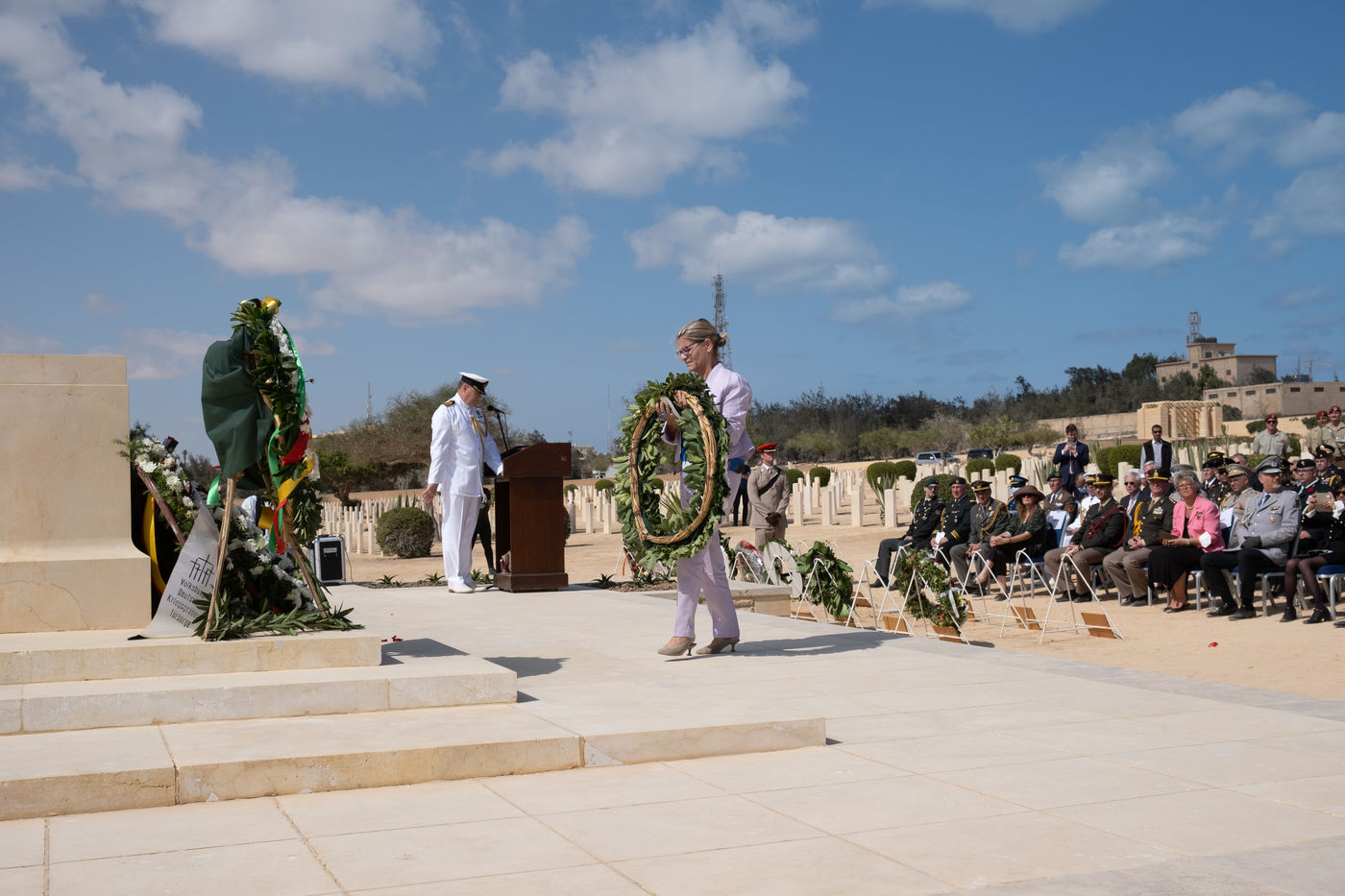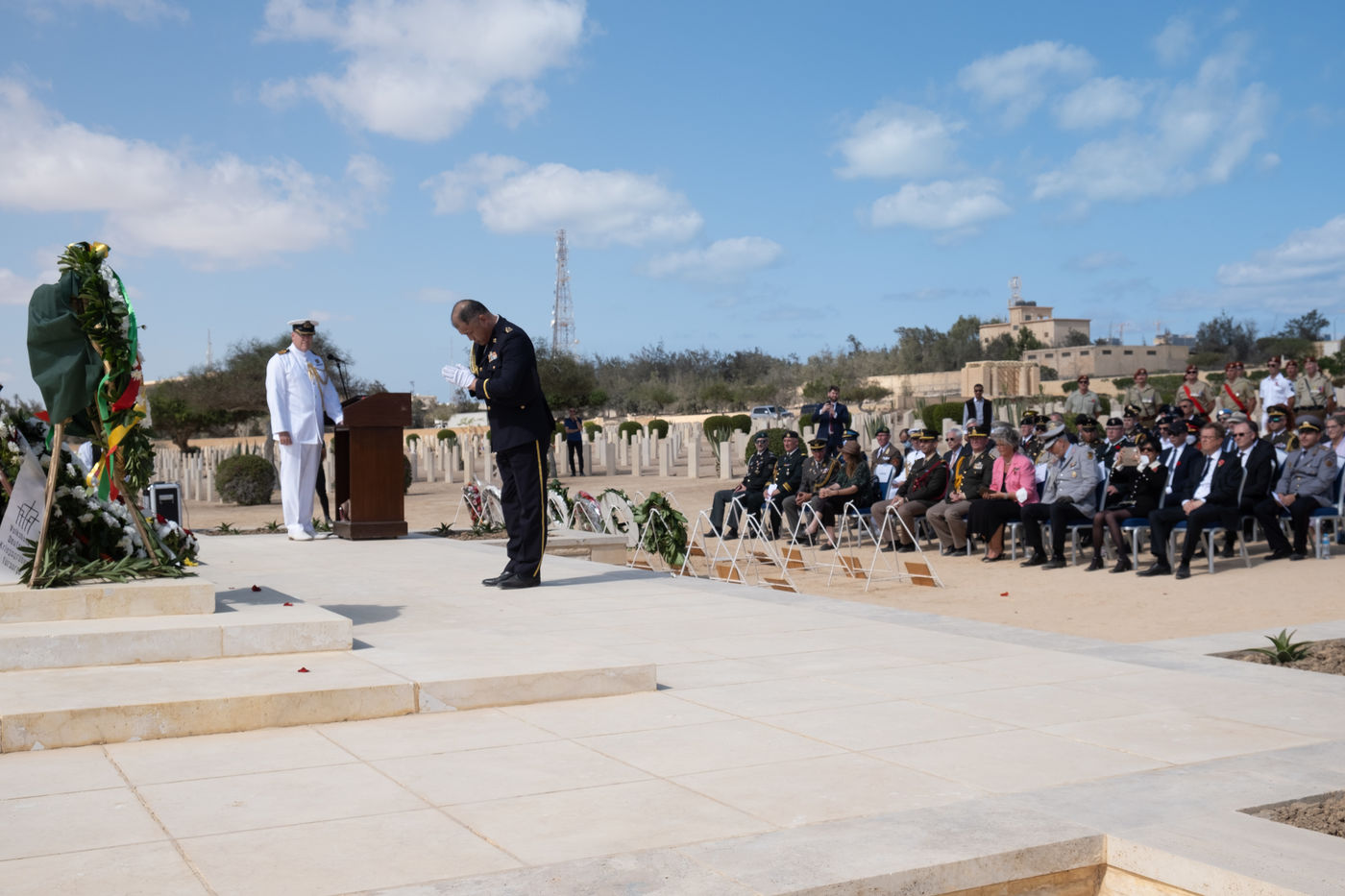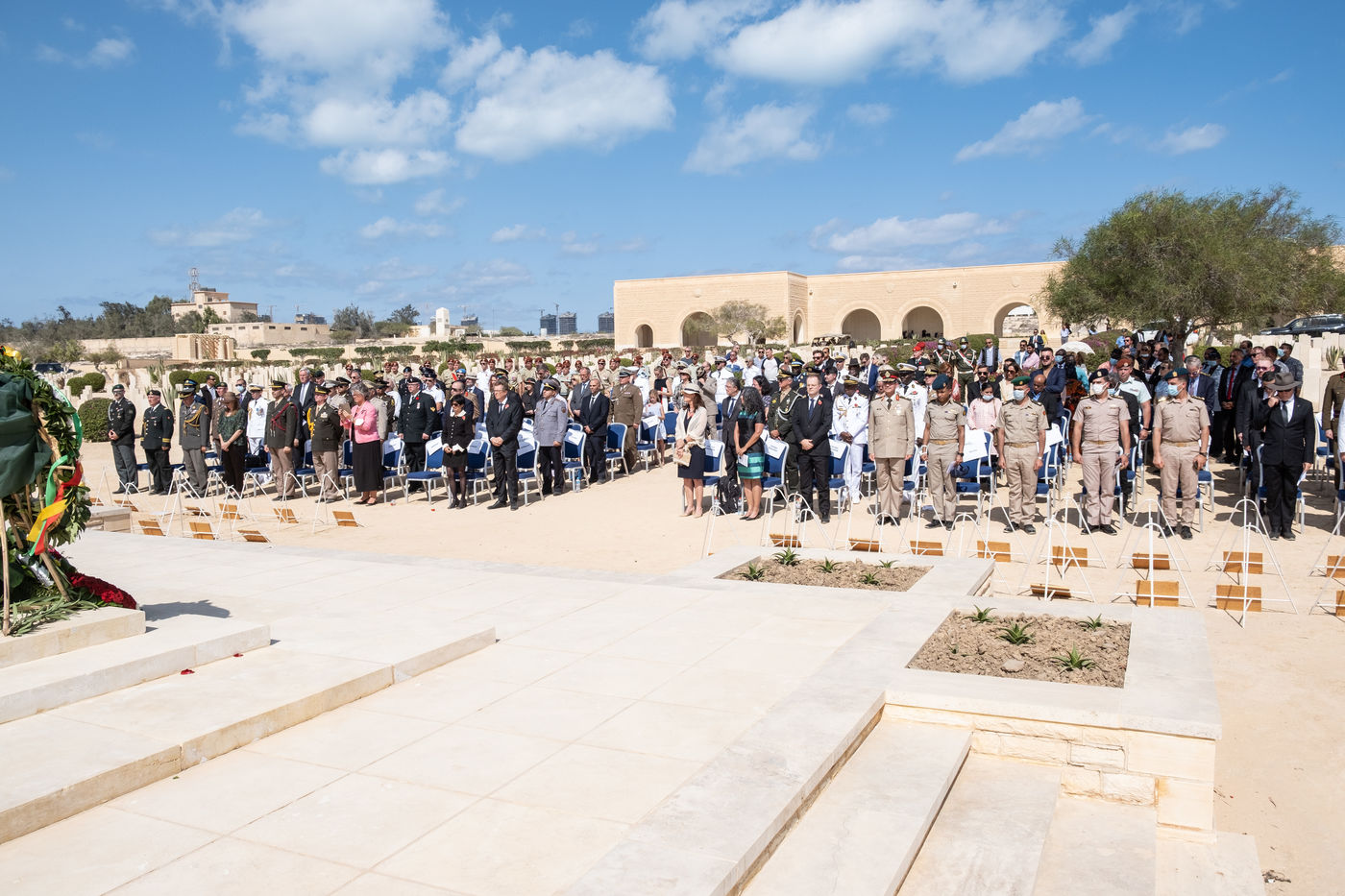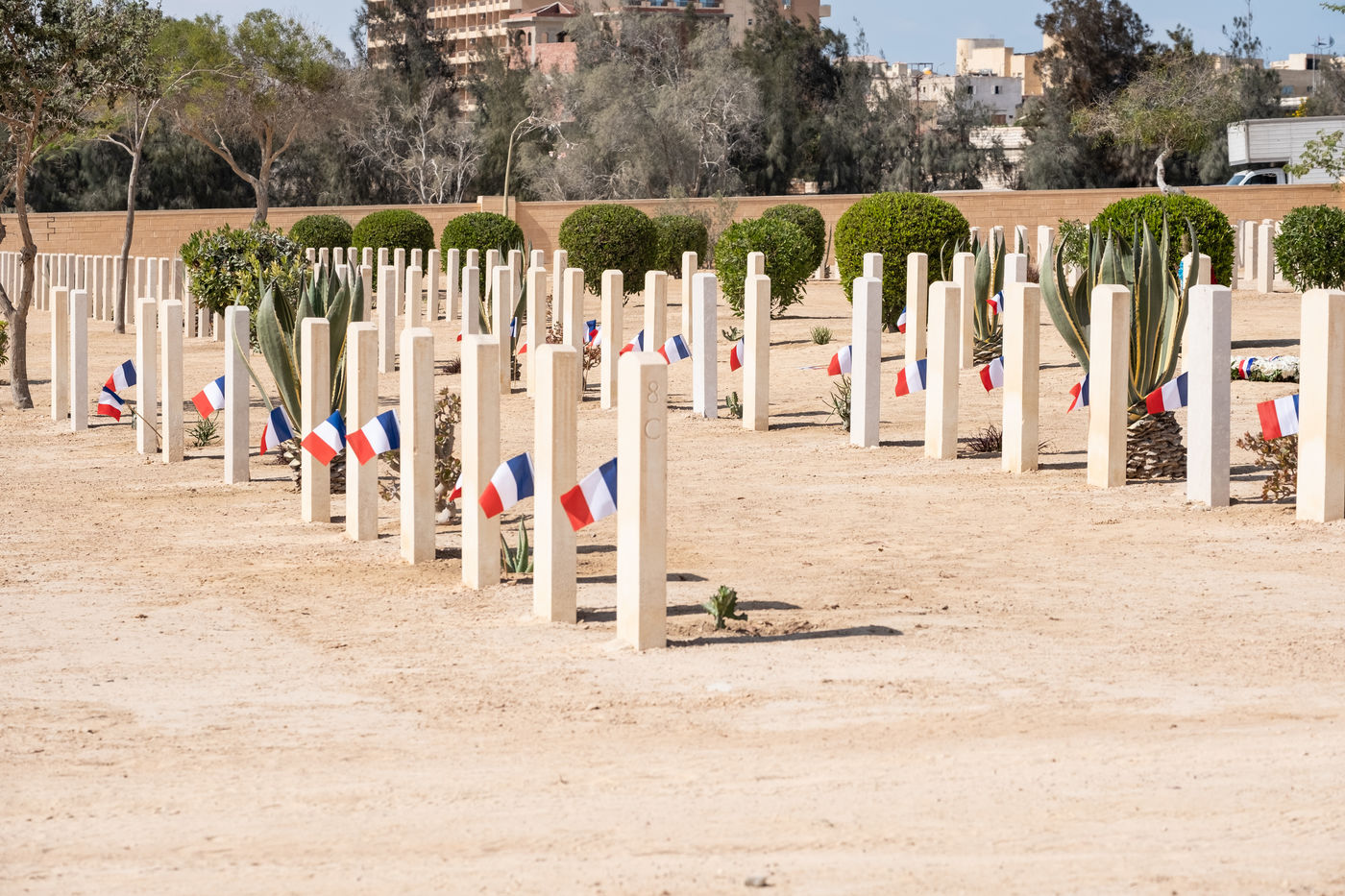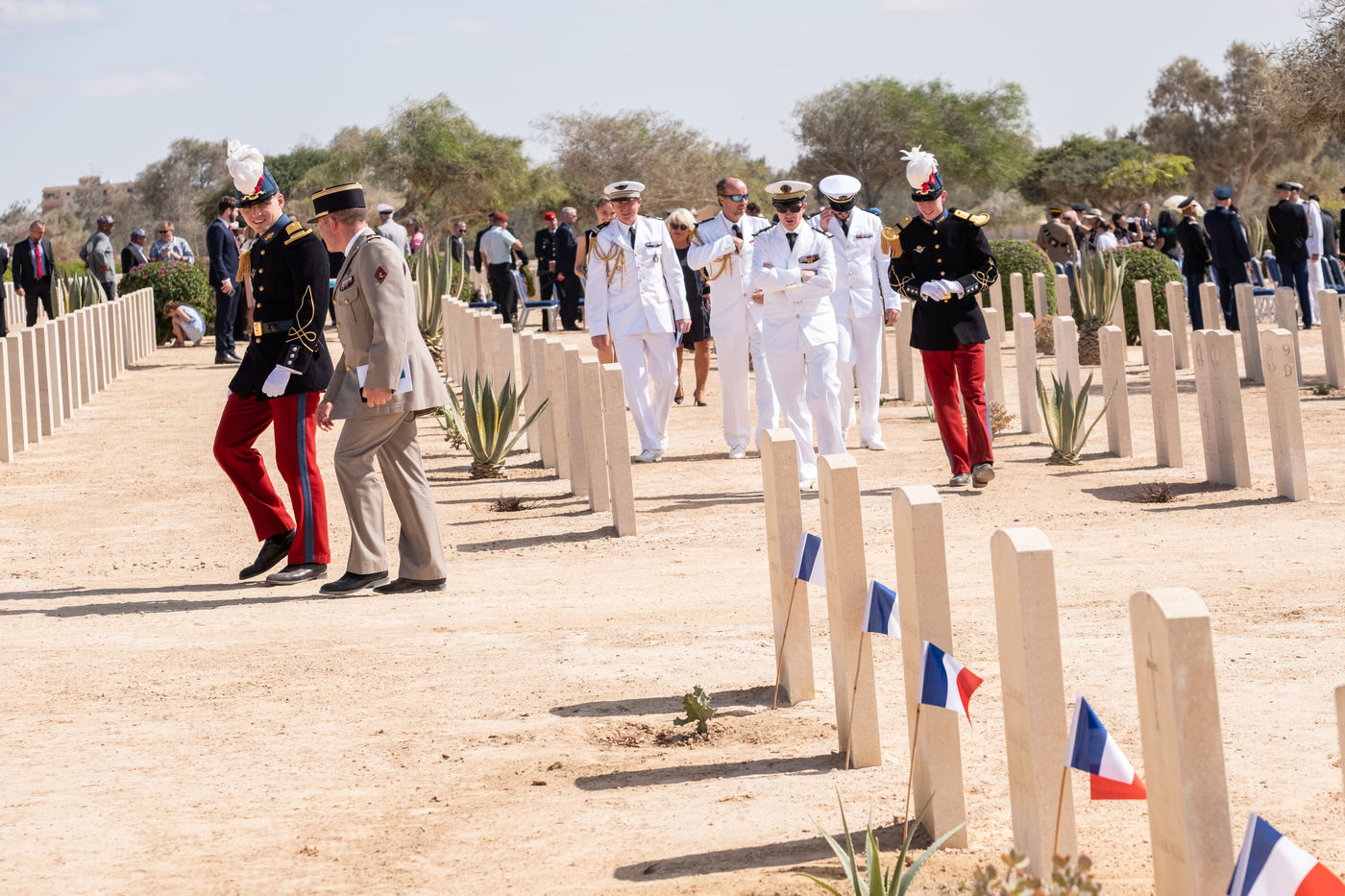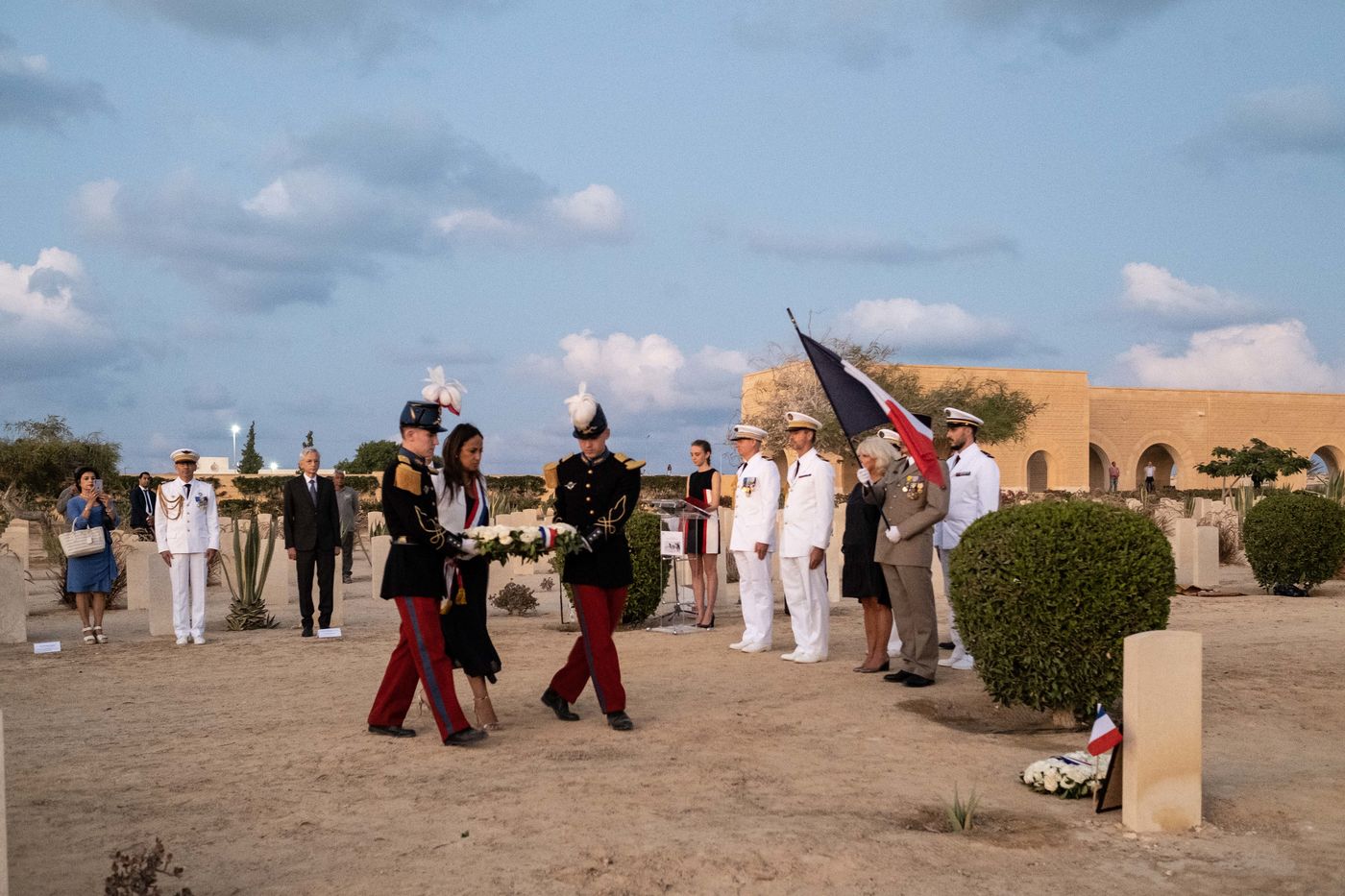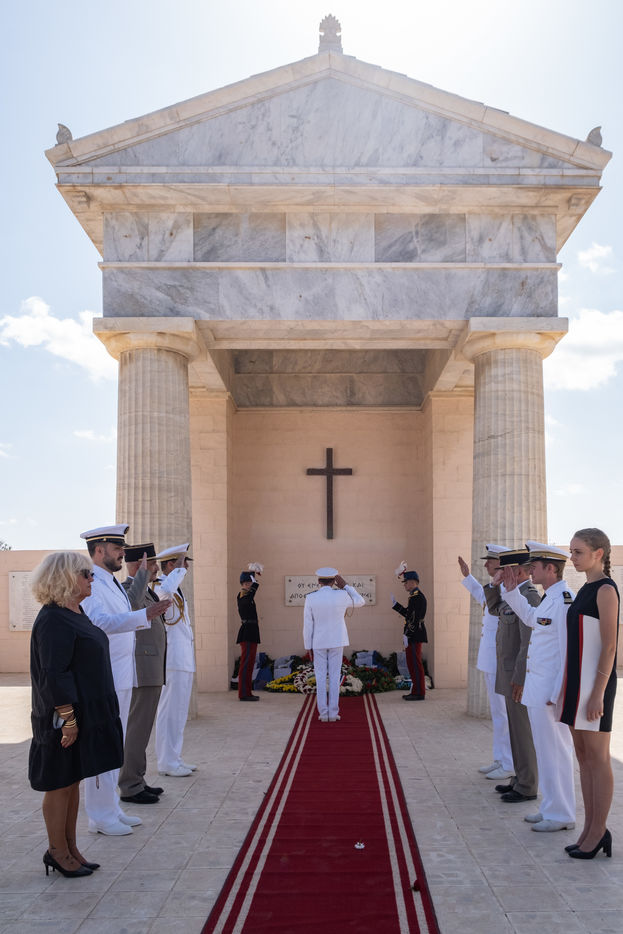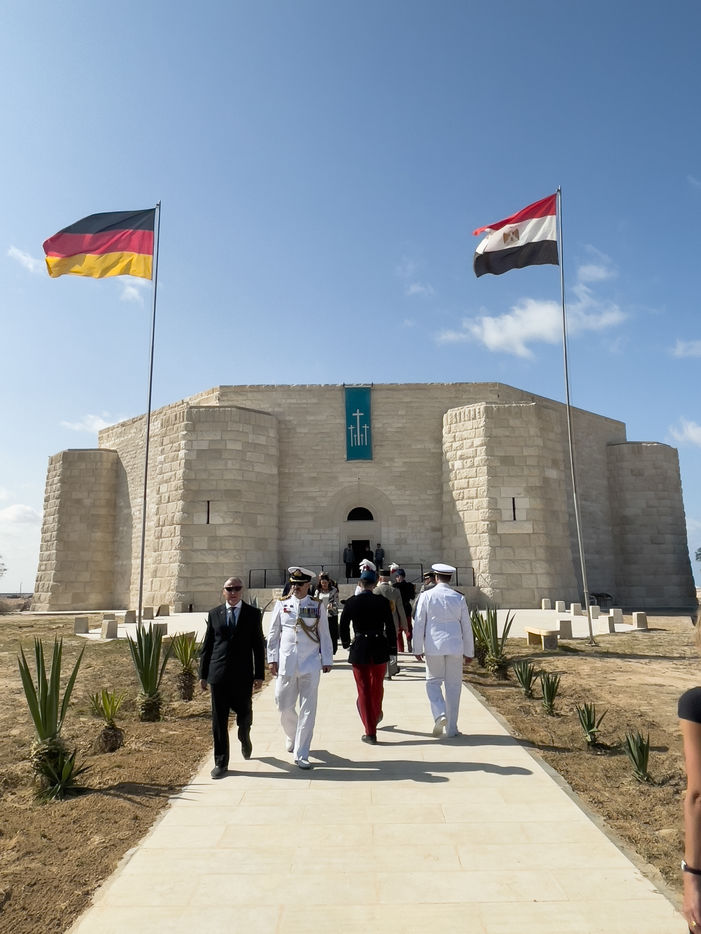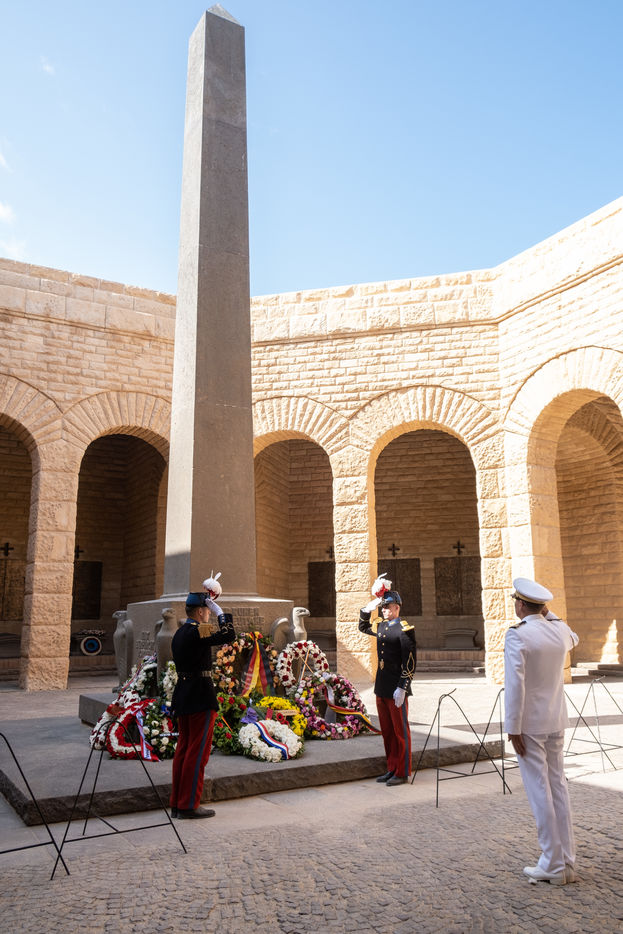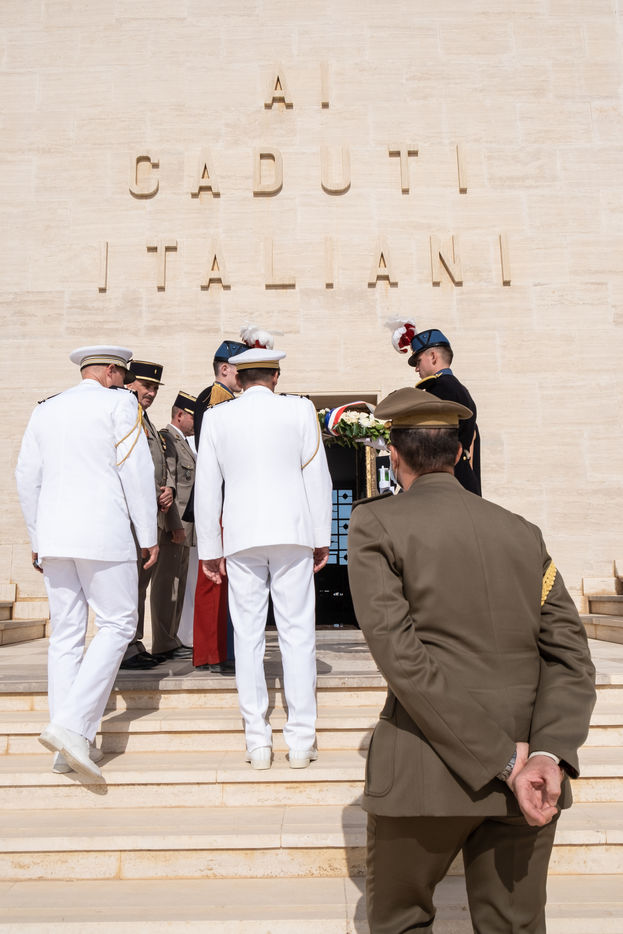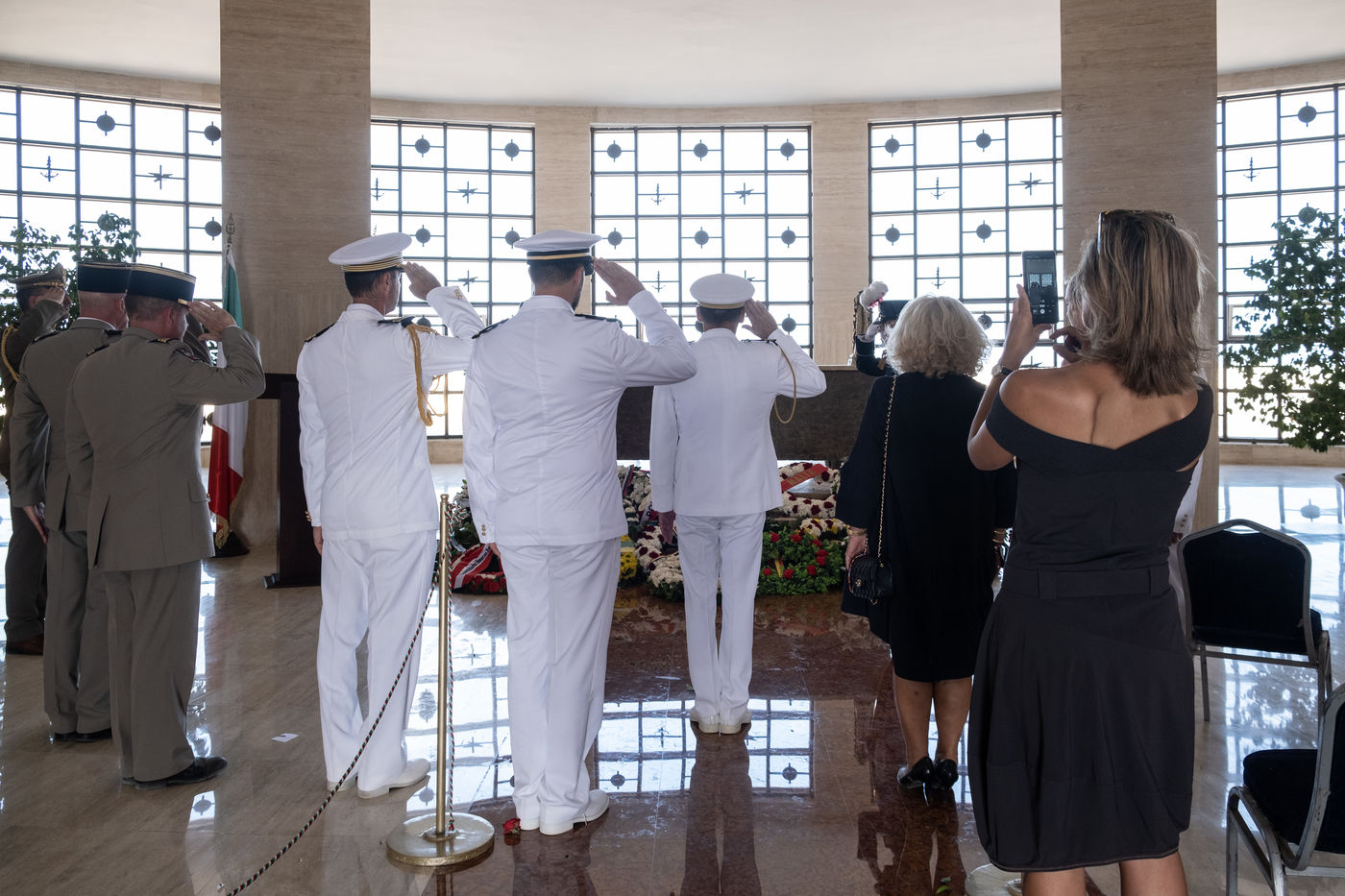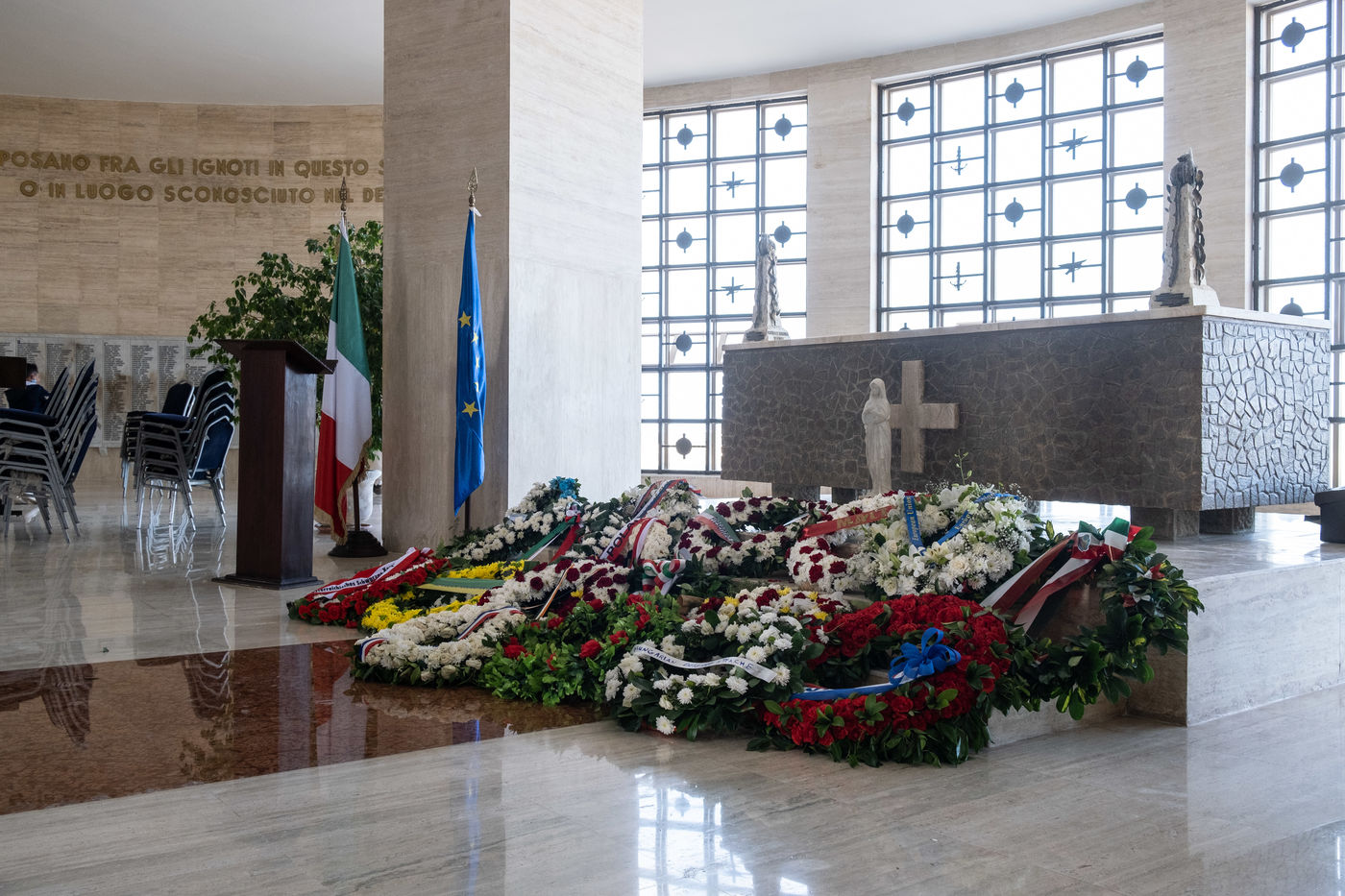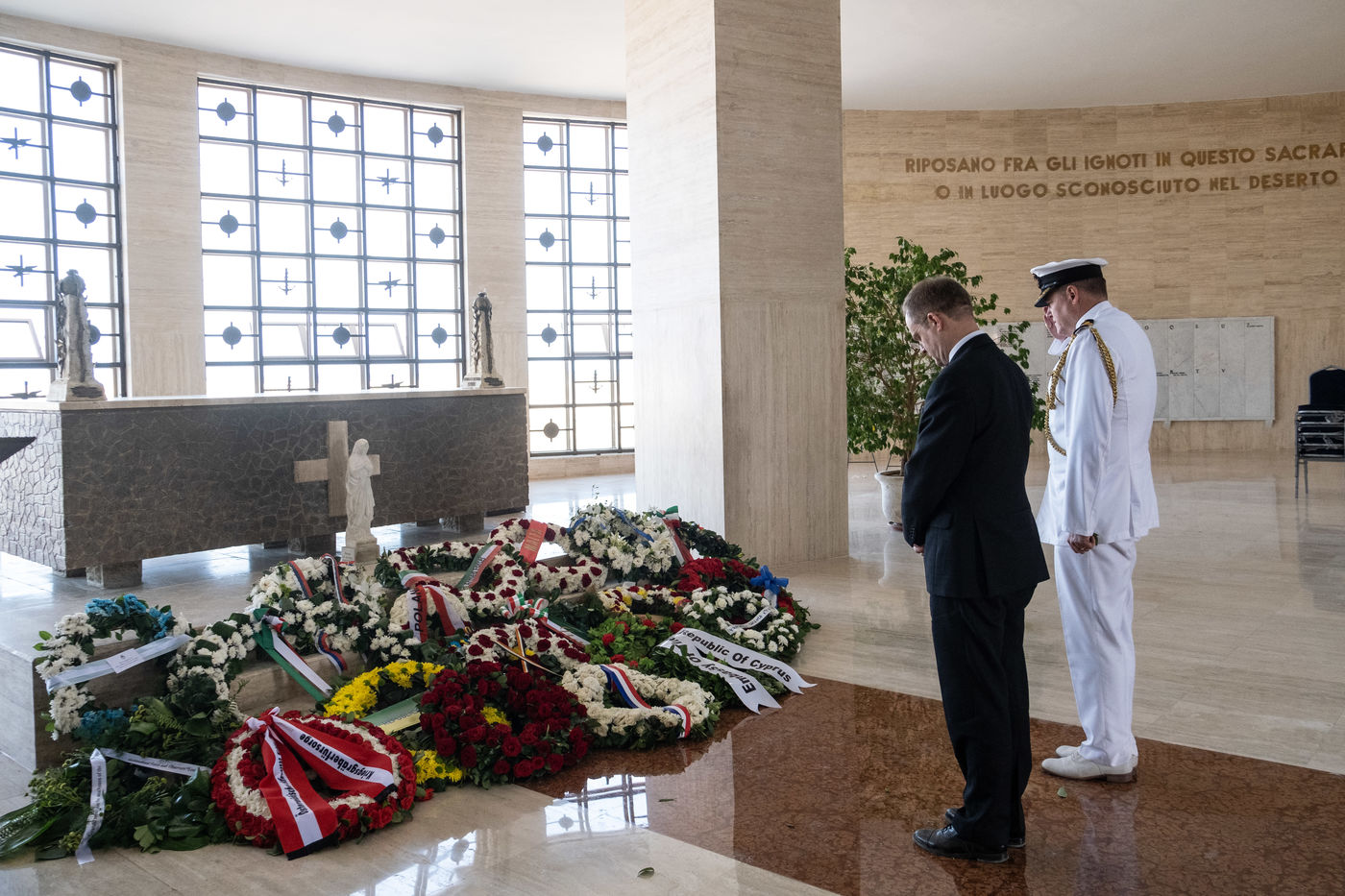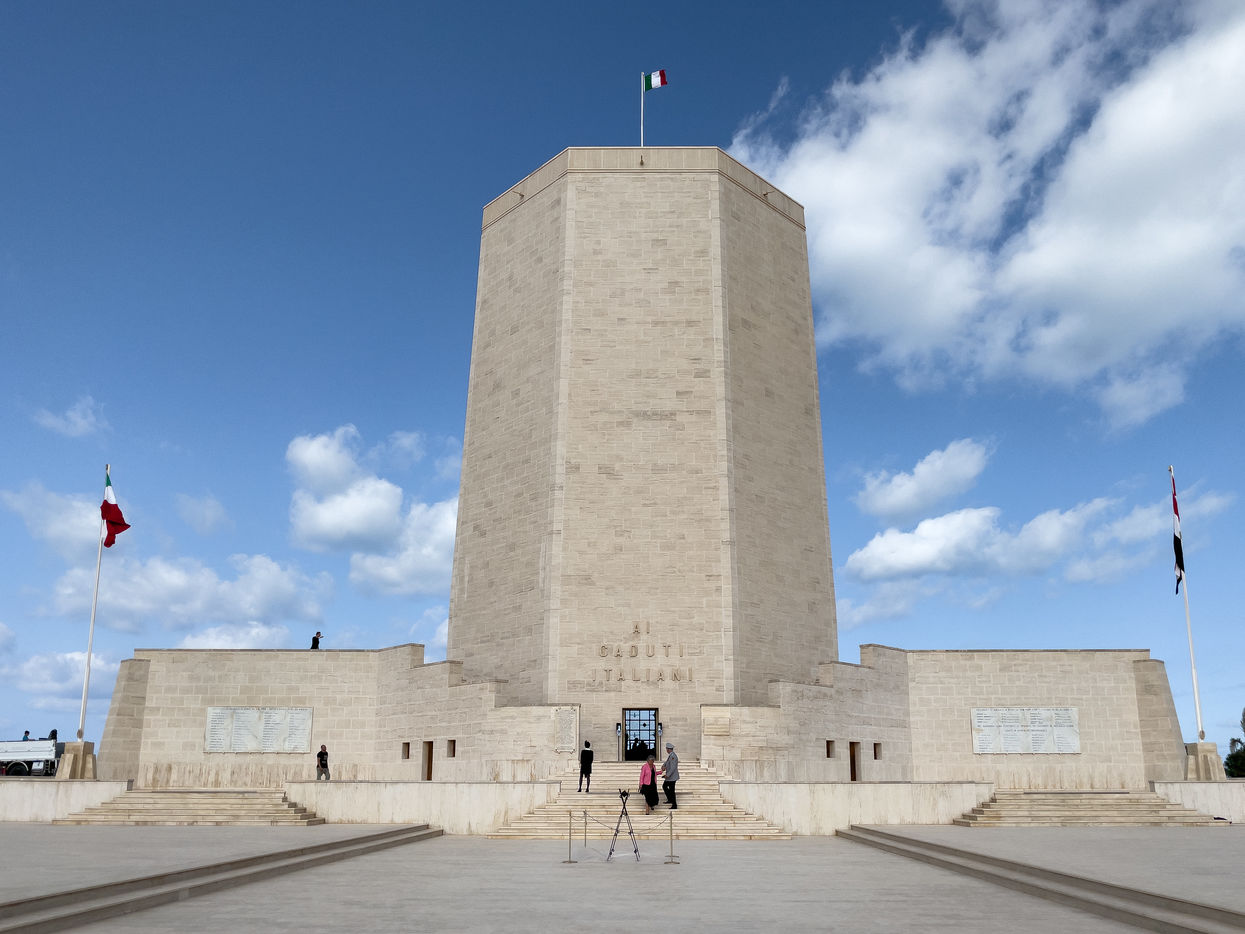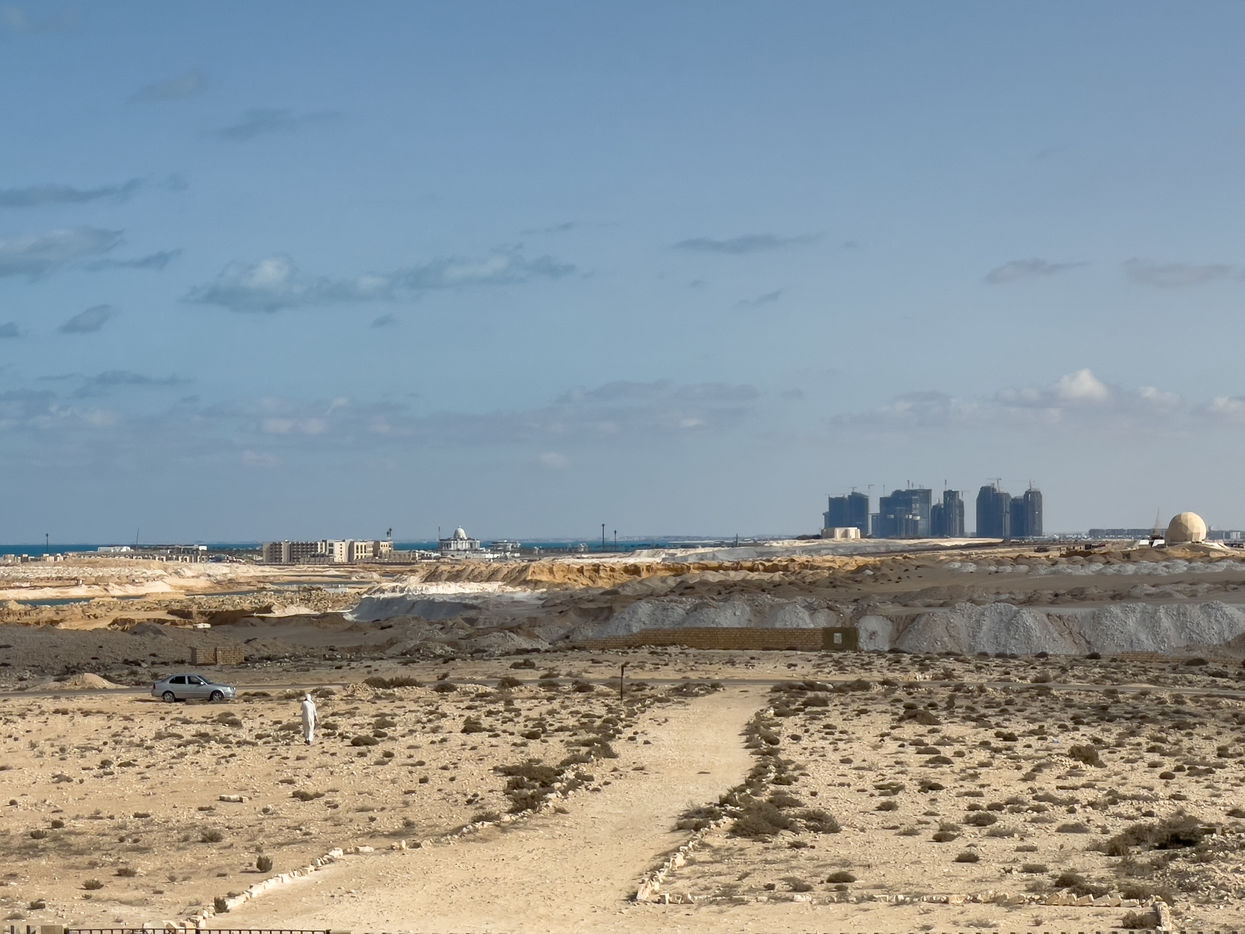Weekend du souvenir a Al-Alamein
Un des plus vastes champs de batailles au monde n ayant implique aucun civil.
Si la participation francaise a ete limitee en termes d effectifs et d actions, elle revet neanmoins une importance symbolique et marque l engagement de la France Libre aux cotes des britanniques en Afrique du Nord.
Un peu moins de 17000 tombes pour plus d une centaine de nationalites differentes sont dispersees sur plusieurs sites de la petite ville de El Alamein.
Situee au bord de la mediterranee, a 240 kms au nord-ouest du Caire, c est la qu ont ete construit les cimetieres et memoriaux des soldats tombes lors de ces batailles qui ont marque un tournant dans la seconde guerre mondiale au profit des forces alliees.
La France organisait cette annee une ceremonie tres intime, en amont de la ceremonie generale. Organisee par la mission de defense en Egypte, elle s est deroulee dans le carre francais du cimetiere du Commonwealth, au pied de la tombe du lieutenant Amilakvari, une des figures mythiques de la legion etrangere. C est ici que se trouve la majorite des 53 soldats francais qui y sont enterres.
Les nombreuses delegations diplomatiques etrangeres se sont reunies au cimetiere du Commonwealth ou une commemoration a ete menee conjointement par le reverend Joe Harvey (cathedrale All Saints au Caire) et les attaches de defense britannique et allemand. L occasion de rappeler la fin des hostilites et le devoir de transmission, indispensable a une bonne entente mutuelle. Au cimetiere ce jour-la, le capitaine Stephen Deacon de la Royal Navy, attache de defense britannique, a cloture la ceremonie en appelant les participants a oublier leurs differends diplomatiques, « a etre amis et a discuter », une bonne intention en cette periode de tensions particulierement marquees entre la France et le l Angleterre.
Les delegations se sont ensuite relayees au pied des memoriaux grecs, allemand et italien, pour y deposer des gerbes de fleurs et saluer la memoire de tous les soldats morts en octobre 1942.
Remembrance Weekend in Al-Alamein
One of the largest battlefields in the world that did not involve any civilians.
If the French participation was limited in terms of numbers and actions, it is nevertheless of symbolic importance and marks the commitment of the Free French alongside the British in North Africa.
Just under 17,000 graves for more than a hundred different nationalities are scattered over several sites in the small town of El Alamein.
Situated on the Mediterranean, 240 km north-west of Cairo, it is here that the cemeteries and memorials of the soldiers who fell in the battles that marked a turning point in the Second World War for the benefit of the Allied forces were built.
This year, France organised a very intimate ceremony, prior to the general ceremony. Organised by the Defence Mission in Egypt, it took place in the French section of the Commonwealth Cemetery, at the foot of the grave of Lieutenant Amilakvari, one of the mythical figures of the Foreign Legion. This is where most of the 53 French soldiers who are buried here are to be found.
The numerous foreign diplomatic delegations gathered at the Commonwealth cemetery where a commemoration was conducted jointly by Reverend Joe Harvey (All Saints Cathedral in Cairo) and the British and German defence attachés. It was an opportunity to recall the end of hostilities and the duty of transmission, which is essential for mutual understanding. At the cemetery that day, Captain Stephen Deacon of the Royal Navy, British Defence Attaché, closed the ceremony by calling on the participants to forget their diplomatic differences, "to be friends and to talk", a good intention in this period of particularly marked tensions between France and England.
The delegations then took turns at the Greek, German and Italian memorials to lay wreaths and pay tribute to all the soldiers who died in October 1942.
